

Nashville Bar Association

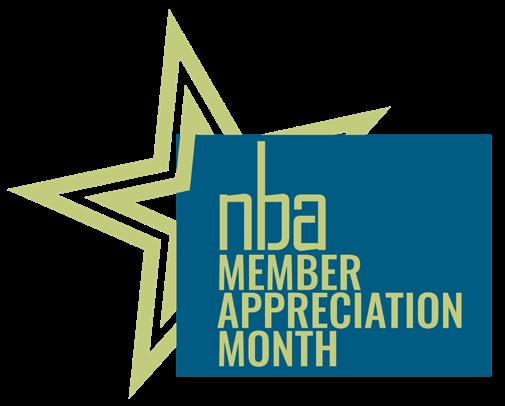
2025 Member Appreciation Month
September 1 | NBA Merchandise Store Opens
Proudly display your NBA loyalty and get your special NBA branded merchandise during Member Appreciation Month from September 1 through September 30!
September 1 - 8 | Photo Caption Contest
Submit your caption to a photo for a chance for your caption to be featured in the Nashville Bar Journal and win a $100 Gift Card!
September 8 - 14 | LinkedIn Contest
Simply like and share a comment and/or photo on our post about your favorite thing on your desk or in your office that helps you stay motivated. By following the post’s guidelines, you’ll be entered to win a $100 gift card!
September 10 | Skyline Social: Bourbon & Headshots
Join us for an exciting event; enjoy gorgeous downtown views, light appetizers, wine, craft beer, a bourbon tasting, and get a new free professional head shot, hosted and co-sponsored by Bass, Berry & Sims!
September 15 - 21 | Instagram Contest
Comment on our post and share your favorite thing about being an NBA member. By following the post’s guidelines, you’ll be entered to win a $100 gift card!
September 16 | NBA Member Exclusive Free CLE
Join us for a virtual CLE: Ethical Considerations for Lawyers Using AI with Oliver Roberts. This seminar is free to NBA members!
September 17 | NBA Annual FREE Member Picnic
Don’t miss this year’s Member Picnic at a new location: First Horizon Park! Enjoy a family-friendly, casual environment, taco bar, fun outdoor games, colleagues galore, and an open bar stocked with beer and wine.
September 22 - 29 | NBA Member Benefit & Sponsor Giveaways
Be on the lookout for emails on how to enter our giveaways to win exciting prizes from our Member Benefit partners & sponsors.
Visit NashvilleBar.org/ThankYou for more information, details, and how to register for exclusive events


DEPARTMENTS
From the President
Joseph Hubbard
Hear Ye, Hear Ye
2026 Board of Directors Election
It's Time to Renew!
Tune Award Nominations
Annual Meeting & Banquet
NBF Grant Applications
Fall Memorial Service
22nd Annual EpiOn Race Judicata
From The President
Joseph Hubbard

The inspiration for this column struck me about 7:55am on a Saturday morning. My youngest daughter had turned seven the day before, and she celebrated by having two of her cousins spend the night. I enjoyed some quiet time before the kids woke up, but as they got going, I listened as four little girls took turns ordering our Google smart speaker to follow their whims in increasingly authoritative tones.
“Hey Google. Play music.” “Hey Google! Play Taylor Swift!” “HEY GOOGLE!! TURN IT UP!!!” Naturally, this was followed by each of them belting lyrics into a karaoke machine.
I could not help but marvel at the speed with which technology alters our lives— and how we don’t always make a conscious choice to embrace it. The technology the children of 2025 are growing up with is a far cry from the tapes and CDs and hard disks of my younger years. Our grapefruit-sized smart speaker can play almost any recorded song in human history, create reminders and timers and alerts, announce a weather prediction, or summarize the news. I can also use it to broadcast a housewide message: “Turn that off and come downstairs to eat!”
But all of those capabilities seem positively quaint compared to generative artificial intelligence and the changes it may bring to our lives. In keeping with the entertainment theme in this issue, it’s hard to escape the feeling that “we’re not in Kansas anymore.”
AI is no longer a distant concept from science fiction. It is present in our search engines, our devices, our legal research platforms, our courtrooms, and, increasingly, the practice of law. Some lawyers I know believe that certain AI platforms are already capable of researching, analyzing, and drafting briefs and motions on par with a first to third year lawyer.
This sort of technological advancement can be both exciting and helpful while at the same time disorienting and unsettling. If the AI of 2025 can work like a third-year lawyer, will it replace young associates? And how long will it be before AI can replace the work of a 10-year lawyer? A 20-year lawyer? A judge? That’s a dizzying thought. Will lawyers survive the AI revolution? I believe so. Lawyers often find ourselves at the intersection of tradition and transformation, and this moment is no different. Technology enables many shortcuts and efficiencies in our work. Past innovations enhanced our ability to serve clients better. There is cause for optimism about what AI may make possible.
But no matter what changes occur, there are some vital aspects of lawyering for which AI is a poor substitute for humans. I refer to those character traits which make one an excellent lawyer: judgment, experience, knowledge, empathy, professionalism, and wisdom, just to name a few. I predict we’re a long way from the day when paying clients will fully trust AI—which is known to “hallucinate” made-up facts and nonexistent case law—with the complex problems that lawyers solve every day.
Where does the NBA fit into all this? My view is that AI also cannot replace the work of a bar association or the core values it promotes, such as mentorship, inclusion, fellowship, civility, integrity, and justice. These are values that we cultivate in ourselves and those around us by connecting with each other and serving our community. No machine can do that work for us.
I’m not alone in believing there is something vital in in-person interaction. In 2005, Steve Jobs wrote an email to himself with some thoughts about the importance of relationships and the serendipity that produces them. He summarized it with this
(continued on page 5)
Joseph Hubbard, Publisher
William T. Ramsey, Editor-in-Chief
Summer Geyer, Managing Editor
Lauren Poole, Managing Editor
Adrienne Bennett Cluff, Layout/Design/ Production
EDITORIAL COMMITTEE
Deji Adeniyi
Ellison Berryhill
Ramona DeSalvo
Brittany Ford
Seth Granda
Candi Henry
Timothy Ishii
J. Bart Pickett
Bryan Pieper
Worrick Robinson
Katlin Ryan
Kristin Thomas
Elizabeth Tipping
Jonathan Wardle
NASHVILLE BAR JOURNAL (ISSN1548-7113) (USPS 021-962) is published quarterly by the Nashville Bar Association, 150 4th Ave N, Ste 1350, Nashville, TN 37219. Periodicals Postage Paid at Nashville TN.
POSTMASTER: Send address changes to Nashville Bar Journal, 150 4th Ave N, Ste 1350, Nashville, TN 37219-2419.
No part of this publication may be reprinted without written permission of the Nashville Bar Journal Editorial Committee. All articles, letters, and editorials contained in this publication represent the views of the authors and do not necessarily reflect the opinions of the Nashville Bar Association. For more information, visit NashvilleBar.org/ NashvilleBarJournal
The Nashville Bar Journal welcomes discourse. You may submit counterpoint editorials to Adrienne.BennettCluff@ nashvillebar.org to be considered by the editorial committee for publication in a future print or online content.
NASHVILLE BAR ASSOCIATION 150 4th Ave N, Ste 1350 Nashville, TN 37219 615-242-9272 | NashvilleBar.org
The Nashville Bar Association, established in 1831, is a professional organization serving the legal community of Nashville, Tennessee. Our mission is to improve the practice of law through education, service, and fellowship.
The NBA — with around 2,400 members — is the largest metropolitan bar association in Tennessee.
Joseph Hubbard, President
Sherie Edwards, President-Elect
Marie Scott, First Vice President
Christen Blackburn, Second Vice President
Deadrick Thaxton, Secretary
S. Jae Lim, Treasurer
Billy Leslie, Assistant Treasurer
Lela M. Hollabaugh, General Counsel
Callie Hinson, YLD President
Bahar Azhdari, Immediate Past President
Ben Raybin, First Vice President-Elect
Hon. Anna L. Escobar, Second Vice PresidentElect
BOARD OF DIRECTORS
Josh Burgener
Daniel Clayton
Erin Coleman
Beau Creson
Elizabeth Foy
Shellie Handelsman
Jay Harbison
Cherrelle Hooper
Lauren Kilgore
Joy Longnecker
Hon. John R. Manson
Casey Miller
Worrick G. Robinson IV
Bruce Shanks
John Tarpley
Leigh Walton
Hon. Stephanie Williams
Tyler Yarbro
NBA TEAM
Jeanne B. Heaton, Executive Director
Adrienne Bennett Cluff, Marketing & Communications Coordinator
Peyton Hosale, CLE Coordinator
Traci Hollandsworth, Director of Programs & Events
Annie Holmes, LRIS, Member Database, & Operations Coordinator
Corinna Saporito, Development Coordinator
HAVE AN IDEA FOR AN ARTICLE?
We want to hear about the topics and issues you think should be covered in the journal. Send your ideas to Adrienne.BennettCluff@ nashvillebar.org.
From The President (cont.)
one sentence: “You can’t plan to meet the people who will change your life.” This theme was the precursor to a story about a series of chance encounters by which he met his wife, Laurene Powell Jobs.
AI can certainly mimic human interaction and communication, but the NBA can be the vehicle that introduces you to the people who will change your life. To meet them, you’ll have to inject yourself into our community of lawyers even when it’s tempting to believe our work can be done by a computer with no need for human interaction. If you put yourself out there, I know you will find the people who will propel you into a future that AI, however clever it may be, cannot dream up.

Footnotes
1 I make no commentary on the ethical implications (which are substantial), but please don’t take this as an endorsement.
Hear Ye, Hear Ye

2026 BOARD OF DIRECTORS ELECTION
Members of the NBA will be electing six new directors to serve on the Board for a four-year term commencing January 1, 2026. The election will take place in November, and all members whose 2026 membership dues are postmarked no later than October 31 will be eligible to vote. To learn more about the NBA Board of Directors, visit NashvilleBar.org/ Leadership

MEMBERSHIP RENEWALS
It’s time to renew your membership! The 2025 membership year ends on October 31. You may renew online at NashvilleBar.org/ Renew (it only takes a few minutes!), by contacting us at NBA_ Membership@nashvillebar.org or calling 615-242-9272. If your firm is part of Firm Billing with the NBA, please check with your administrator before renewing online. Thank you for your continued support and membership!

TUNE AWARD NOMINATIONS
We are now seeking nominations for the John C. Tune Public Service Award to be presented at the Annual Meeting & Banquet on Thursday, December 11. The purpose of the award is to recognize members who make outstanding contributions to the greater Nashville area community while distinguishing themselves as practicing attorneys. To submit your nomination, email Traci.Hollandsworth@NashvilleBar.org no later than Friday, October 10, expressing why you believe your nominee is deserving of this prestigious award. Visit NashvilleBar.org/Awards for more information.

SAVE THE DATE! NBA ANNUAL MEETING & BANQUET
Gather around for our annual meeting on Thursday, December 11, at Music City Center. A reception for our members will begin at 5:30pm followed by dinner and the program. Check your NBA Weekly Updates for more details!

NASHVILLE BAR FOUNDATION GRANT APPLICATIONS
The Nashville Bar Foundation will soon begin accepting grant applications for 2026. If you know of any 501(c)(3) organizations that may be eligible for a Foundation Grant, please spread the word. Grant eligibility and application guidelines can be found at NashvilleBar.org/NBFGrantGuidelines
The Foundation will allocate funding each budget year on the basis of written applications in a format prescribed by the Foundation. Grant applications can be found at NashvilleBar.org/ NBFGrantApplication and will be accepted between December 1, 2025, and January 15, 2026.

FALL MEMORIAL SERVICE
Our Fall Memorial Service will be held on Thursday, November 20. The service begins at 11:00am. Stay tuned to upcoming NBA Weekly Update emails and NashvilleBar.org/MemorialService for a list of those who will be honored. A project of the NBA’s Historical Committee, memorial services honor the memory of those Nashville lawyers and judges who have recently passed away.

YLD 22ND ANNUAL EPION RACE JUDICATA
Join the YLD on Saturday, October 11, from 8:30am-11:00am, at Edwin Warner Park, Shelter 10. The race offers 5k and 10k distances for runners and walkers as well as team competitions and exciting post-race activities such as yoga, a beer garden, and non-alcoholic mimosas. All proceeds benefit of ABLE Youth and Nashville Chapter of Achilles International. Visit NashvilleBar.org/RaceJudicata to register today.
Bar Bestie: Nancy
Settling into a new firm to challenge me and a new puppy to ground me — both feel like the start of something really meaningful. Grateful for both kinds of growth. Meet Nancy!

Her full name? Nancy Supta Baddha Konasana. Named after one of my favorite restorative yoga poses — Reclined Butterfly in Sanskrit — known for calm, comfort, and stress release. She arrived in my life just as I was finishing yoga teacher training in June, and her middle name felt like the perfect way to honor that chapter.

Callie Hinson
Welcome to the NBA
Congratulations on your membership – thank you for joining the NBA! We look forward to serving you this year and appreciate your support. Visit NashvilleBar.org or contact NBA_Membership@nashvillebar.org with questions or to learn more.
New Members (May 1 - July 31)
Cole Albright
Jackson Amos
Emma Anderegg
Gabi Armer
Crystal Armstrong
Trenton Banks
Pierce Beckham
Salter Blowers
Ally Bojczuk
Paula Bressman
Beverly Briley
Brittany Brown
Kirsten Brown
Emily Bryant
Laura Carrier
Parker Cathey
Will Duffel
Kami Fernandez
Levi Fernandez
Jim Fessenden
Serena Futch
Kilgore Gailmard
Amber Gardner
Anna Giovannini
Jaske Goff
Jaehee Gotow
Katelyn Graham
Leen Heresh
Jennifer Holden
Ashley Hurssey
Jasmine Jackson
Jeremy Joerger
Ben Johnson
Angela Karas
Sarah Kovach
Susie Lafferty
Ciara Lenehan
Brian Leonard
Joey Levy
John Maddox
Ashley Martin
Brooks Mitchum
Joshua Mullen
Elizabeth Nicklas
Charles Nugent
Harry Oxnard
Shan Patel
Brantley Pierce
Hailey Polisano
Kate Powell
Lauren Pritchett
Abby Ray
Elvira Rodriguez
Derek Scott
Parker Sellers
Chloe Sink
Yh'Neisha Smith
Tedra Spuller
Jimmy Stanley
Jasmine Steele
Maria Stewart
Michael Tackeff
Emma Thomes
Tonio Vance
Maggie Vick
Jack West
Megan Wheeler
Lizzy Wilson
Remon Youssef
Alejandro Zuazua
Calendar of Events

The AI Legal Lab Tools, Ethics, and


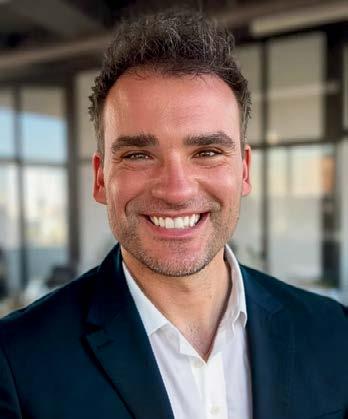


All Shook Up Over AI: One Year After the ELVIS Act Rocked the Legal World.

Chase Talbot focuses his practice on patent, trademark, and copyright matters, assisting clients with intellectual property procurement, enforcement, and litigation. He represents inventors, startups, and established businesses in securing and protecting their innovations, guiding them through all aspects of intellectual property law.

In March 2024, Tennessee enacted the Ensuring Likeness, Voice, and Image Security (“ELVIS”) Act,1 becoming the first state in the nation to comprehensively address the unauthorized use of a person’s voice through artificial intelligence. This landmark legislation was signed into law by Governor Bill Lee on March 21, 2024, and became effective as of July 1, 2024. Its passage was driven by a coalition of industry stakeholders, including artists and trade associations, responding to the rapid evolution of generative AI tools and their potential for misuse. The ELVIS Act expanded the state’s Personal Rights Protection Act of 1984 to respond to emerging threats posed by AI technologies. One year later, assessing the impact of the ELVIS Act provides insight into how states can navigate and influence national discussions on identity protection, AI regulation, and digital rights in a rapidly evolving technological landscape.
The ELVIS Act was motivated by Tennessee’s deep cultural ties to the music industry and growing legal concerns regarding AI-generated content. As the home of Music City and the legacy of Elvis Presley himself, Tennessee has long prioritized protecting the economic and personal rights of artists. The state’s original publicity rights statute, passed in 1984, was a direct legislative response to litigation over the use of Presley’s name and likeness following his death. That law focused primarily on an individual’s name, image, and likeness. However, it did not address the voice—a gap that became apparent with the rise of AI voice-cloning technologies. By 2023,
viral incidents like an unauthorized AI-generated track featuring simulated vocals of artists such as Drake and The Weeknd demonstrated how easily these tools could reproduce and disseminate realistic vocal performances without consent, potentially misleading the public and damaging the commercial value of the original artist’s work.
"The ELVIS Act marks a milestone in the evolution of the right-of-publicity doctrine."
Key Provisions of the Elvis Act
The ELVIS Act’s central innovation is the express inclusion of “voice” as a protected attribute under Tennessee’s right of publicity framework. It defines voice broadly to include both real and simulated sounds that are “readily identifiable and attributable” to a specific individual, regardless of whether the voice is an actual recording or a digital reproduction.2 Specifically, the statute covers a voice, regardless of whether the sound contains the actual voice or a simulation, marking a distinct and expansive shift beyond traditional voice imitation cases. This change ensures that individuals— and particularly artists—retain control over one of their most unique identifiers. The statute treats a person’s
(continued on page 12)

generated content with little legal recourse for the person being imitated.
One of the more innovative provisions of the ELVIS Act allows for third-party enforcement by industry stakeholders.4 For example, if an artist has entered into an exclusive services agreement with a record label, that label may have standing to enforce the artist’s publicity rights under the Act. This development is particularly important for the music industry, as it empowers record companies to take legal action even when the artist has not yet initiated proceedings. It also reflects a broader industry strategy of shared rights enforcement, where commercial partners help shoulder the burden of monitoring and responding to infringement.
The statute also reaffirms Tennessee’s recognition of post-mortem publicity rights. Under the ELVIS Act, these rights extend ten years beyond an individual’s death, with the potential for indefinite renewal so long as the persona is commercially exploited at least once every two years after that initial period.5 This ‘use-it-or-lose-it’ provision ensures that estates actively managing a deceased
voice, image, or likeness without their permission, designating such conduct as a Class A misdemeanor.9 These remedies reflect Tennessee’s policy interest in deterring exploitation of its artists and protecting their ability to monetize their creative output.
Notably, the Act goes even further by imposing secondary liability on technology providers. It allows for civil actions against developers, distributors, or operators of algorithms, platforms, or tools that are primarily designed to generate unauthorized voice or likeness replicas.10 To impose liability under this provision, a plaintiff must demonstrate not only that the tool’s primary purpose is unauthorized replication, but also that the provider knew of such unauthorized use. This dual requirement appears designed to focus enforcement on bad actors rather than general-purpose developers. This section of the statute has been particularly lauded by the recording industry, which has grown increasingly concerned about the role of AI tools in enabling widespread, untraceable distribution of fake content.
Initial Impact: One Year in Review
Over the past year, the ELVIS Act has received praise from both artists and policymakers. Organizations such as the Recording Industry Association of America (RIAA), BMI, ASCAP, and SAG-AFTRA have expressed strong support for Tennessee’s leadership in adapting its legal frameworks to the realities of modern content creation. Legal commentators have similarly acknowledged the Act as a necessary update to traditional publicity law. As artificial intelligence continues to evolve, the ability to digitally replicate a person’s voice or likeness has expanded from a technical curiosity to a pressing legal and ethical issue. Tennessee's law attempts to ensure that the identity and creativity of artists remain within their control, rather than becoming public commodities open to unauthorized duplication.
Despite its impact, the ELVIS Act has yet to generate a published court opinion, likely because litigation often exceeds one year, and the tendency of disputes to settle privately. In the absence of judicial opinion, scholars have attempted to anticipate how these issues may unfold. Some scholars have noted that the ELVIS Act may test the boundaries between expressive content and commercial speech, particularly in the realm of music, where mimicry and homage are longstanding artistic tools. Some legal scholars and civil liberties advocates have raised concerns that the statute’s broad reach may overextend publicity rights and inadvertently chill parody or tribute performances. Commentators have urged courts to carefully apply the ELVIS Act’s fair use provisions to avoid infringing upon protected speech. Others have cautioned that establishing what constitutes a “readily identifiable” voice in the context of AI imitation may present evidentiary and constitutional challenges.
At the national level, Tennessee’s action has not gone unnoticed. Other states have introduced or considered similar bills, including Kentucky, Illinois, and California. Meanwhile, Congress has floated the Nurture Originals, Foster Art, and Keep Entertainment Safe Act (NO FAKES Act), which proposes federal protection against unauthorized AI-generated likeness and voice replication.11 If enacted, such a law could complement or preempt certain state statutes, depending on its final language. In the meantime, the ELVIS Act remains the most comprehensive voice-specific publicity rights statute in the country.
Looking ahead, Tennessee’s ELVIS Act represents the first step in what may become a broader national attempt among the states to regulate synthetic media
and safeguard individual identity in the digital age. The Act offers an early model for how the legislature might approach the challenges posed by generative AI. As litigation begins to develop, Tennessee’s experience is likely to inform the design and implementation of similar laws in other jurisdictions and potentially even at the federal level. Courts interpreting the Act will have the opportunity to clarify key statutory terms and establish precedents that could shape the evolution of publicity rights law across the country. In the meantime, attorneys across the country are watching closely for the first judicial interpretations of the Act, particularly regarding how courts will evaluate whether an AI-generated voice is “readily identifiable,” how they will measure damages in cases of non-monetized infringement, and how they will interpret the statute’s fair use exceptions.
Conclusion
The ELVIS Act marks a milestone in the evolution of the right-of-publicity doctrine. It updates Tennessee law for the realities of 21st-century technology, closes critical gaps in voice protection, and sends a message that identity is not up for grabs—even in the age of AI. While it will take a bit more time to see how the statute is interpreted and enforced, it is already shaping how artists, attorneys, and content creators think about voice, likeness, and the future of digital impersonation. For now, the King’s name lives on—not just in music history, but in legal innovation.
Footnotes
1 Tenn. Code Ann. § 47-25-1101 et seq.
2 Tenn. Code Ann. § 47-25-1102(6).
3 Tenn. Code Ann. § 47-25-1103.
4 Tenn. Code Ann. § 47-25-1106(f).
5 Tenn. Code Ann. § 47-25-1104.
6 Tenn. Code Ann. § 47-25-1107.
7 Tenn. Code Ann. § 47-25-1105.
8 Tenn. Code Ann. § 47-25-1106.
9 Tenn. Code Ann. § 47-25-1105(b).
10 Tenn. Code Ann. § 47-25-1105(a)(3).
11 No Fakes Act of 2024, S. 4875, 118th Cong. (2024).

SATURDAY OCTOBER 11, 2025
8:30 AM - 11:00 AM
EDWIN WARNER PARK SHELTER 10
NASHVILLE, TN
BENEFITTING ABLE YOUTH & NASHVILLE CHAPTER OF ACHILLES INTERNATIONAL
5K & 10K OPTIONS FOR RUNNERS AND WALKERS AS WELL AS TEAM COMPETITIONS AND EXCITING POST-RACE ACTIVITIES SUCH AS YOGA, A BEER GARDEN AND NON-ALCOHOLIC BEVERAGES.

Premier Members
The NBA Premier Membership is a special category that recognizes our members who desire to demonstrate the utmost commitment and support to our programs and services. Contact NBA_Membership@nashvillebar.org for more information on how to become a Premier Member.
David Anthony
Gail Ashworth
Bahar Azhdari
Laura Baker
Dan Berexa
Michael Berman
Blake Bernard
Hon. Joe Binkley Jr.
Christen Blackburn
Hon. Melissa Blackburn
Tammy Block
Charles Bone
Jaz Boon II
Dewey Branstetter Jr.
Josh Burgener
Kenny Byrd
Chris Cardwell
Loy Carney
Mark Chalos
Will Cheek III
Daniel Clayton
Seth Cline
Todd Cole
Erin Coleman
Chris Coleman
Grover Collins
Lew Conner Jr.
Beau Creson
Joy Day
John Day
Jackie Dixon
Sherie Edwards
Keith Frazier
Barry Gammons
Dave Garrison
Andy Goldstein
John Griffin Jr.
Thomas Hager
Amy Hampton
Shellie Handelsman
Jay Harbison
Bill Harbison
Trey Harwell
Aubrey Harwell Jr.
Paz Haynes III
Lisa Helton
Ellen Hendrickson
Zack Henson
Lela Hollabaugh
Cherrelle Hooper
Paul Housch
Joseph Hubbard
Jan Jennings
Jordan Keller
Jenny Kiesewetter
Lauren Kilgore
John Kitch
Bill Koch Jr.
Irwin Kuhn
Ed Lanquist Jr.
Tom Lawless
Billy Leslie
Wendy Longmire
Joy Longnecker
Kim Looney
Hon. Randal Mashburn
Sam McAllester III
Marcia McShane
Bob Mendes
Casey Miller
Margaret Moore
Hon. Pat Moskal
Joshua Mullen
Phil Newman
Paul Ney Jr.
Andrew Noell
David Parsons
Greg Pease
Andrea Perry
Kaya Porter
Tracy Powell
David Raybin
Ben Raybin
Nathan Ridley
Tabitha Robinson
Worrick Robinson IV
Chris Sabis
Marie Scott
Bruce Shanks Jr.
Joe Shelton
Kimberly Silvus
Liz Sitgreaves
Laura Smith
Saul Solomon
Mike Stewart
Gerard Stranch IV
Jim Stranch III
Chris Tardio
John Tarpley
Jim Todd
Hon. Aleta Trauger
Howard Vogel
Michael Wall
Leigh Walton
Liz Washko
Jim Weatherly
Carolyn Wenzel
Tom White
Memorie White
Stephanie Williams
Tom Wiseman III
Talley Wood
Tyler Yarbro
Ed Yarbrough
Stephen Young
Bill Young
Remon Youssef
Gulam Zade
Stephen Zralek
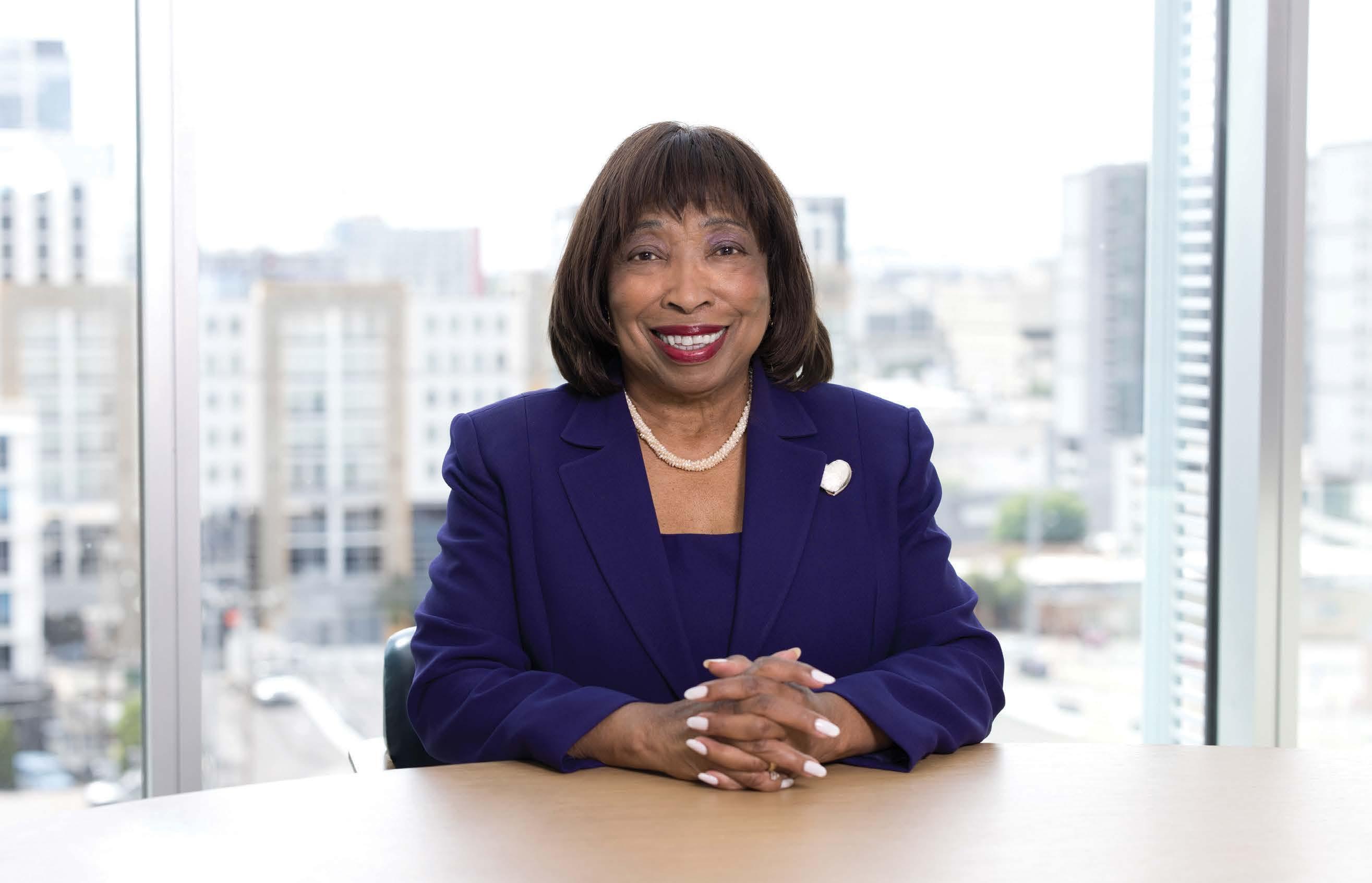

Background Check | Lauren Kilgore

Bart Pickett serves as the State Trial Court Administrator for the Twentieth Judicial District where he oversees the operations of the 18 State Trial Courts. Prior to that, he practiced as a trial attorney for Liberty Mutual Insurance Company.
Music has always played a central role in Lauren Kilgore’s life. Her father, a cancer surgeon, is also a world-class fingerstyle guitarist. Her grandfather played old-time fiddle, and her grandmother performed on a resonator guitar in their local band in Whitwell, Tennessee. Kilgore’s own family, consisting of her father and two younger brothers, continued that legacy with their own band that played at home and around Birmingham. They played contemporary, folk, indie, and older-style country.
After graduating high school in 2000, Kilgore excitedly left Alabama and moved to New York City to study music production and engineering at NYU. Shortly after starting her sophomore year, 9/11 happened and Kilgore decided to move back to Birmingham where she took a semester off before starting at BirminghamSouthern College. She graduated with degree in political science in 2005. Determined not to go to law school like most of her political science classmates, she decided to move to Nashville to pursue a career as a songwriter and artist.
Having grown up spending time every summer at the Chet Atkins Appreciation Society Convention, Nashville always had a special place in her heart. She also had lots of good contacts in the music industry that she called upon as she tried her hand at being a performer and songwriter. After moving here in 2006, Kilgore spent two years waiting tables at Sperry’s and writing songs mostly with her co-workers, a couple of whom have found success.
For Kilgore, however, the grind of performing and writing with the hope of one day catching a break just lost its luster. She decided her skill set was better suited to become a lawyer who helped and supported artists in their journey. She thought Vanderbilt Law School was her best route and she started there in 2008, commencing her path to becoming an entertainment lawyer. There she took every entertainment law class she could and served as an editor on the entertainment


law journal.
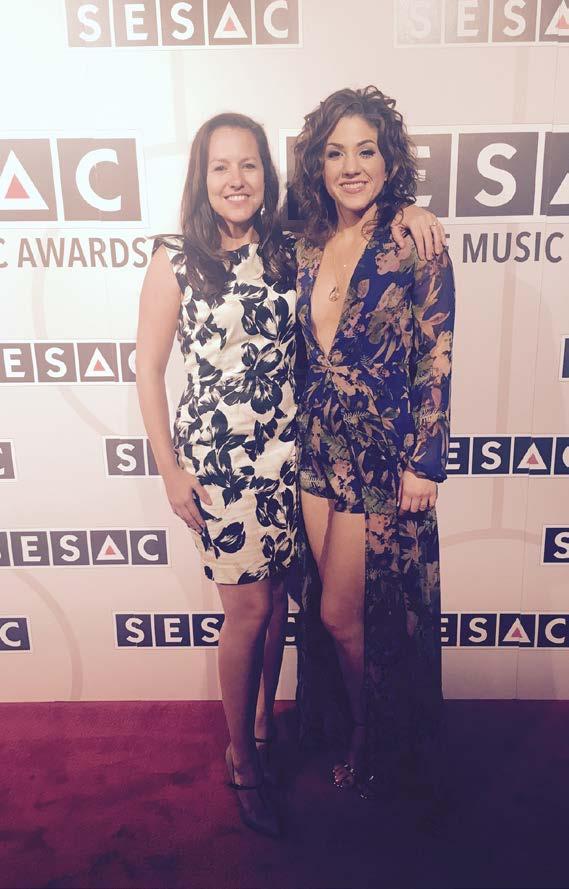
During her law school summers, Kilgore clerked for a few Nashville firms. Her goal was to find a firm with the opportunity to do entertainment law. She ultimately chose Burr & Forman, LLP in 2011 where there was an attorney who did some transactional entertainment work. While Kilgore was in the financial services group, she was able to do some of that transactional work and also make her own connections within the industry to build up her own practice.
In 2013, she received a forwarded email from a two-person entertainment law firm looking for a younger associate. That prompt led Kilgore to finally
(continued on page 18)
Background Check (cont.)
working on Music Row doing intellectual property, entertainment transactional matters, and litigation. The firm merged a couple of times growing to Shackelford, Bowen, McKinley & Norton, LLP, and then merging with the national firm Buchalter, P.C. in 2024.
Kilgore had not planned on leaving private practice as she had found success and loved representing her clients, but a rare opportunity presented itself that she could not pass up. The general counsel for Sony Music called her about coming in-
to jump at it.
So, in March of this year, Kilgore joined Sony Music Nashville & Provident Entertainment as Senior Vice President, Legal and Business Affairs. She manages and directs the legal activities for both labels and helps to develop and implement their legal, business, and operational strategies. Given all of the AI changes and streaming music service issues, this is an interesting time to be on this side of music industry and Kilgore is enjoying it.
Kilgore married Metro Detective
and live in Sylvan Park with their cockapoo, Coco. Their youngest two have even picked up the love of songwriting and singing. Kilgore loves taking them with her to various shows around town. Kilgore herself can still be found singing with family and friends. She also plays the banjo and picked up the fiddle after inheriting one of her grandfather’s.
Kilgore serves on the NBA Board of Directors and was recently selected for Leadership Music, a highly competitive national program promoting the music industry. n

Thank You to Our 2025 Diversity Committee Sponsors


Gadget of the Month | Online Music Streaming Services:
Quality vs. Price vs. Fairness to Artists

Back in my youth, we would listen to vinyl records on our home stereos and play both sides front to back (it was really enjoyable, especially with some plant-based support.) There were 45 records that contained a single song, but we mostly listened to single songs only on the radio. Then, in the early 80s, CDs came along, and trips to Tower Records were weekly (if not daily) rituals. By 2010, however, CD sales declined dramatically, and listeners turned to online purchases and streaming services. And now, streaming “rules the roost.” The increase in music streaming services has created dramatic changes for the music industry. It has changed how artists are compensated for their work, and, in some situations, streaming services reduce the quality of the audio.
In this article, I will compare what I consider to be the leading
streaming services in terms of quality of audio, ease of use, library size, and compensation to artists. I will compare Spotify, Apple Music, Amazon Music, YouTube Music, Tidal, and Qobuz. There are others such as Deezer and LiveOne, but I do not subscribe to them, so I could not do a fair comparison.
The analysis of compensation to artists is a bit tricky because there are several factors that can affect payouts to artists: payout model (market share model vs individual listener model; payment rates on different platforms; listener locations (payouts can be higher in “high-roller” areas); terms of an individual artist’s agreements, and other factors. In addition, some artist representatives lower the artist’s payment rate in exchange for an advantageous position in the streaming service’s algorithm (services use algorithms to suggest selections to users, and some artist pay to get more plays from the algorithms).
Spotify
Spotify is the “800 pound gorilla” in this category. It has the largest library (over 100 million songs) and the most users (626 million). It has the largest subscriber base and is the most popular by far. It is available on almost any device or platform you can imagine. The app is easy to use and has a lot of useful features, such as playlist sharing and Spotify Connect. However, the quality of its audio is just not as good as several of the other services because it does not have “lossless audio.” Spotify claims that
lossless is coming soon, but it has said that before (2021), and it did not happen. Finally, Spotify is not my favorite because its average payout per stream is the lowest among this group (except for YouTube). It only pays an average of $.003 to $.005 per stream.
Apple Music
I like Apple Music a lot. It has 100 million tracks as well. Unlike Spotify, all are in lossless format at 1411 kbps. The app is easy to use, but, as expected, it works best if you are using an Apple device. It is really amazing on an iPad, and, when combined with a HomePod, the spatial audio is sweet. The web player for Apple Music does not support lossless audio, however. Also, Apple Music has some great playlists, curated by some great musicians, and those are a joy to listen to. It has one of the highest payout rates of $.006 to $.01 per stream.
Amazon Music
If you already have an Amazon Prime account, you are in luck. This streaming service is included in your subscription. However, you have to pay $9.99 per month for Amazon Music Unlimited, which has much better features (unlimited song skipping and highest audio quality tracks). In addition, its library is smaller than other services. The Amazon Prime account version only has about 2 million tracks, but those are likely the ones you want to hear. Amazon Music Unlimited has 60 million
(continued on page 20)
Gadget of the Month (cont.)

songs and access to thousands of radio stations. You also get highquality music: lossless, hi-res, Dolby Atmos, and spatial audio. And, of course, you can access your music through an Amazon Echo and via Alexa. Unfortunately, Amazon does not pay its artists well, about $.001 to $.004 per stream.
YouTube Music
I know everyone is familiar with YouTube. You probably watch your favorite kitten videos on YouTube. But did you know that YouTube has its own music streaming service as well? If you have YouTube Premium, you get it for free. It has a large selection (100 million tracks) and a large selection of radio stations. You can also upload your own tracks for your personal music choices. You can search by lyrics to songs, and it even has video game soundtracks. However, it does not have lossless or
high-res audio. It really works best with Android devices. Finally, a big drawback for me is the payment level to artists. It is the lowest I have found, about $.00069 to $.002 per stream.
TIDAL
You may not have heard of this service, but you should get to know it. It has the highest resolution of all services, except maybe for Qobuz. It has higher than CD quality tracks, called Tidal HiFi Plus. The difference is very noticeable when compared to other services. You will need the right gear to listen to the difference, though (Bluetooth compresses or “dumbs down” the audio for example). It supports animated artwork, lyrics, and even music videos. The concert livestreams are simply amazing. There are also in-depth record reviews on many selections. Tidal claims it has 110 million tracks, but, in my experience, it is missing several tracks that I have found on other services. If you are a serious music lover, this may be the one for you. In addition, Tidal pays artists well—$.012 to $.015 per stream.
Qobuz
Qobuz is probably another one you have not heard of, but I love this one too. If you are an album-music freak, you will love it too. It offers super hi-res audio, and you do not need special equipment, just highquality amplifiers and speakers (again, no Bluetooth, please). It has a large library as well, about 100 million tracks. You can also download highres music for your ownership. No other service offers that perk. It is also unique because, on Qobuz, many albums come with digital liner notes (like those vinyl album liner notes we would read with our bloodshot eyes). You can go down Qobuz rabbit holes that lead you to other music that is similar or related to the track you are listening to. Finally, I love this service because it pays from $.02 to $.043 per stream. So, which service is the winner? You make the call, but, as you can tell, personally, I am really drawn toward the two you may not have heard of, Tidal and Qobuz. Why not sign up for a free trial for one of them and see if you agree?
See you later, Bill
The NBA All-Access CLE Pass
For $199, members may register for an unlimited number of any NBA-produced* seminars, both in-person and through Distance Learning throughout the membership year (November 1 through October 31**). The All-Access CLE Pass is exclusive to NBA members only. For details and more information regarding the All-Access CLE Pass, visit NashvilleBar.org/CLE
*Some exclusions for All-Access CLE Pass usage apply for special programming including but not limited to CLE Institutes, Master Series speakers, travel-related CLE, some YLD seminars, and other seminars in which we partner with outside entities.
**The All-Access CLE Pass expires annually on October 31. You may purchase a new pass to be used for seminars beyond that date.

Wednesday, September 10
Skyline Social: Bourbon & Headshots
Bass Berry & Sims
Wednesday, September 17
NBA Annual Free Member Picnic
First Horizon Park
Wednesday, October 1
YLD 40th Birthday Bash
Noble's Central Metro Center
Saturday, October 11
YLD 22nd Annual EpiOn Race Judicata
Edwin Warner Park
Mark Your Calendars
Thursday, November 6
NBA’s Annual Historical CLE Program
Metro Government: The Best Idea Nashville Ever Had
Thursday, November 13
Coffee & Connection: Judges & New Bar Admittees
Downtown Nashville
Thursday, November 20
Fall Memorial Service
Downtown Presbyterian Church
Thursday, December 11
Annual Meeting & Banquet
Music City Center
Can You Name These People?
Golden Oldies

Be the first person to email the correct answer to Adrienne. BennettCluff@Nashvillebar.org, and your name – along with the correct answer – will appear in the next issue.
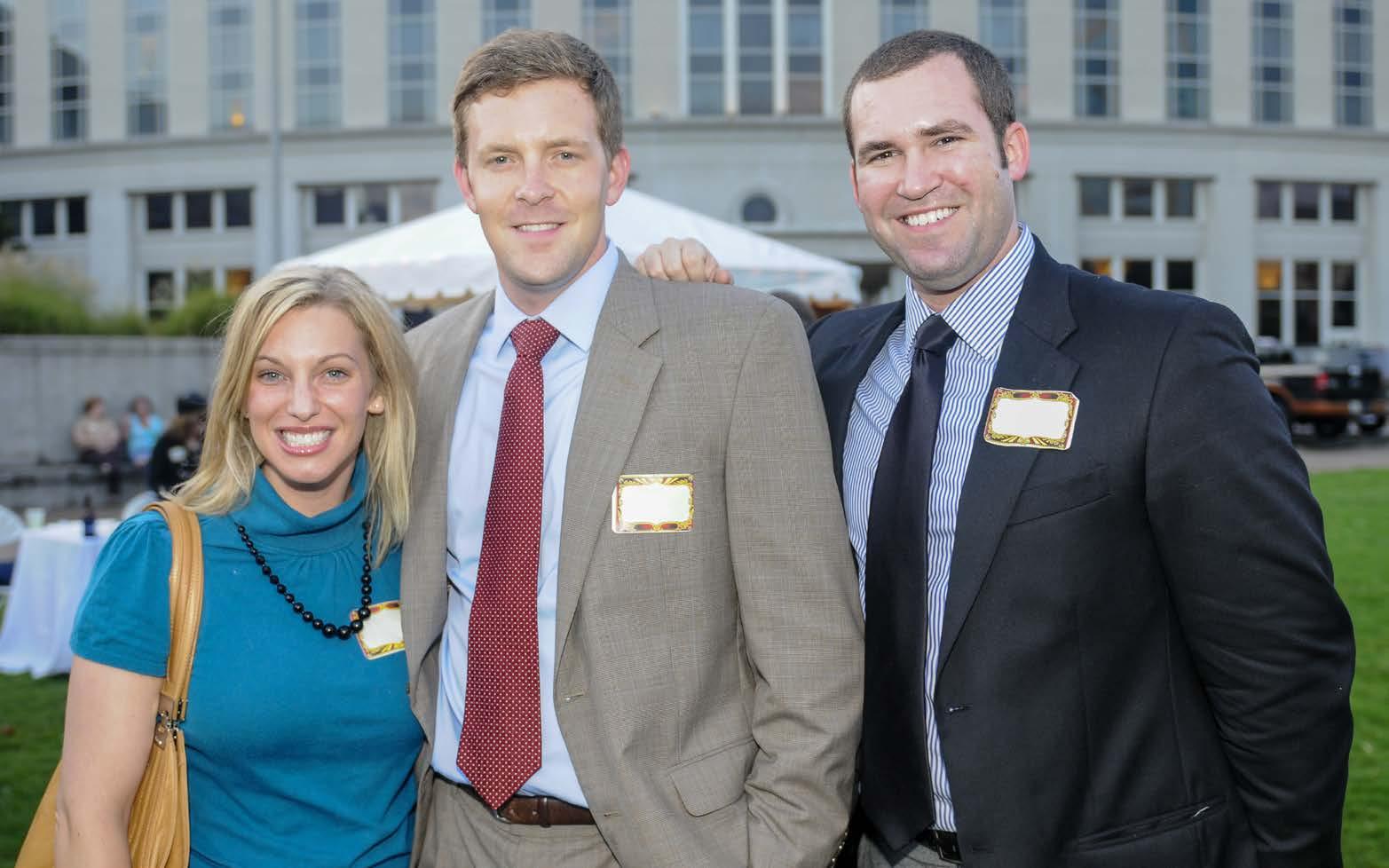
Spring Golden Oldies
Congratulations to Junaid Odubeko at Bradley for correctly identifying the indivuals in last issue's photo! Individuals are listed from left to right: Charles Bone, Stacey Garrett (Koju) and Aaron Rochelle.
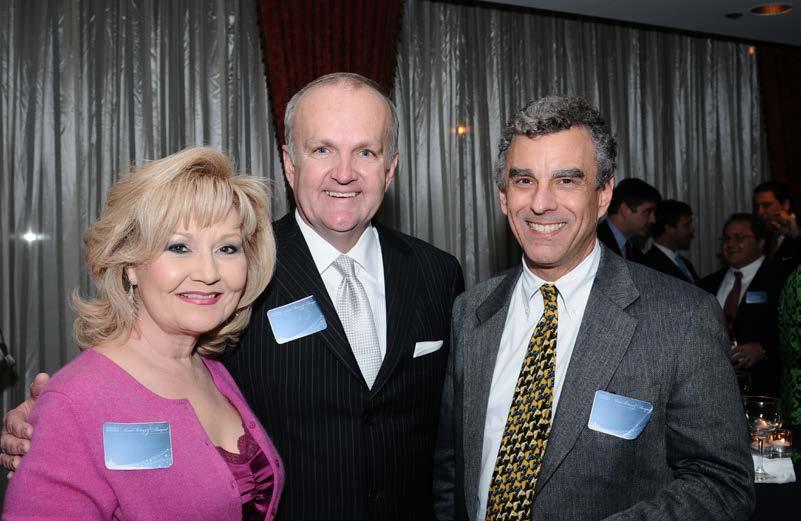
Nashville Bar Foundation: In Focus
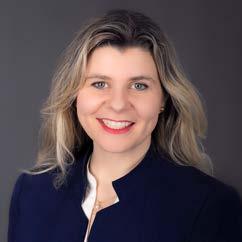
Candi Henry serves as Chief Legal Counsel for the Greater Nashville regional Council, which means she spends an inordinate amount of time misspelling both counsel and council. GNRC is a governmental entity comprising 13 counties and more than 50 cities in upper Middle Tennessee.
The Nashville Bar Foundation advances justice through targeted non-profit financial support, civicminded education, and the development and celebration of a respected legal community. Each year, the Nashville Bar Foundation awards grants to deserving non-profit organizations that further the goals and chartered purposes of the Foundation. This series profiles current grant recipients.
Operation Stand Down Tennessee (OSDTN)

Operation Stand Down Tennessee engages, equips, and empowers military Veterans and their families through crisis, career, and connection services. Services address a broad range of needs, from homelessness to career transitions to connecting Veterans to each other and the community. OSDTN operates Tennessee's only recognized Veterans Service Centers, providing services to approximately 4,500 veterans and families each year.
The Operation Stand Down Tennessee Legal Services Program works eliminate the legal barriers for Veterans in Davidson County to secure housing, employment, or licenses which impact their livelihood and stability. The organization has an attorney on staff, and veterans who are at risk of or experiencing homelessness receive advice and representation at no cost.
Operation Stand Down Board Members in 2025 who are also Nashville Bar Association members are Seth Ogden and Brian Doyle-Wenger.
Nashville Urban Debate League (NUDL)

For more than a decade, the Nashville Urban Debate League has empowered Metro Nashville Public Schools students through teaching the art of policy debate — equipping them with critical thinking, public speaking, and leadership skills to excel academically and
professionally. NUDL aims to create lasting educational and professional opportunities, ensuring every student has the chance to use their voice to advocate for themselves and others.
The League hosts monthly tournaments, provides coaching and other support for after-school activities, and offered its first free summer debate camp during 2025. Each year, it sponsors MNPS students to attend the Urban Debate National Championship.
Board members who are also Nashville Bar Association members are Mike Abelow and Jamie Thompson.
Tennessee Innocence Project (TIP)

The mission of the Tennessee Innocence Project is to free innocent people wrongfully convicted of crimes they did not commit, to raise awareness of this pressing issue, and to drive policy reforms that prevent future wrongful convictions. The Tennessee Innocence Project was established in 2019 as Tennessee’s first full-time statewide innocence organization. We serve individuals across the state who have credible claims of innocence but cannot afford legal representation.
TIP’s core mission is to investigate and represent cases of wrongful conviction, providing legal services to those with credible claims of innocence but no financial means to hire an attorney. In just the first five years of its existence, TIP successfully exonerated seven individuals and overturned three additional convictions for ten individuals who collectively endured over 260 years behind bars for crimes they did not commit.
Nashville Bar Association members serving as TIP Board Members during the '24-'25 fiscal year were Kay Caudle, Sherie Edwards, Jeff Gibson, Joseph Hubbard, and John Tishler.
Thank you to these organizations for your work in our community and to the NBA members who donate their time and money to support these worthy causes. n
Capitol Notes

“Tight as a tick on a dog’s ear.”
Elections. Not often does news of the presidential election for the District of Columbia Bar Association come over the threshold of our doghouse. Two highly accomplished lawyers sought the presidency, Diane Seltzer and Brad Bondi. Ms. Seltzer prevailed over Mr. Bondi. This usually sleepy election occurred this Spring with the background of the 47th President barking about big building law firms and their perceived partisanship. Mr. Bondi’s sister, Pam, is the United States Attorney General, and that relationship appeared to doom Brad’s DC Bar candidacy. Ms. Seltzer won in a landslide where the turnout was significantly higher than any previous DC Bar election.
General Assembly News. The 114th General Assembly is now in recess until January 13, 2026. The state’s budget for the fiscal year beginning July 1, 2026, and ending June 30, 2027, looks to be affected by the new federal Medicaid work requirements. Currently, Georgia and Arkansas are the only states with a work requirement, but lawmakers in 13 states were in the process of designing their own plans before passage of the new federal law. Tennessee’s TennCare program is a significant part of our state budget and any budgetary pressure there may make the rest of the state’s budget tight.
7th Congressional District. On July 20, 2025, Congressman Mark Green resigned his 7th District US House seat for a better, but as yet undisclosed gig. Governor Bill Lee has issued a writ of election to set the date for the special elections to fill the seat. The dates are October 7 for the primary and December 2 for the general election. The qualifying deadline was August 12 at noon. The 7th district is west of downtown Nashville and runs from the Kentucky line south to the Alabama line and covers all of Stewart, Montgomery, Roberston,

Houston, Humphreys, Dickson, Cheatham, Decatur, Perry, Hickman, and Wayne counties, and covers the eastern part of Benton County, and the western parts of Davidson and Williamson counties. Most of the voters are in Montgomery, Williamson, and Davidson counties. The district is a new one for the Tennessee political map after the 2020 census, and it has tended to vote Republican in the 2022 and 2024 elections. Each party will have a hotly contested primary election. For first time voters in this district, the deadline to register to vote in the special election is September 8, 2025.
Calendar Notes
Aug. 21 - Sept. 21September 1 -
October 7 -
October 18October 31November 6November 11December 2 -
Summer Shakespeare at OneCITY; Labor Day holiday for government and NBA offices;
Special Primary Election for 7th congressional district;
TSU homecoming game v. Howard; Halloween; Vanderbilt homecoming game v. Auburn; Veterans Day holiday for government and NBA offices;
Special General Election for 7th congressional district. n
Peggy Sue, the Beagle Hound is fond of the classic 1957 Buddy Holly song. When hunting legislative news or biscuits, she is hard to contact.
Reserve Our Facilities

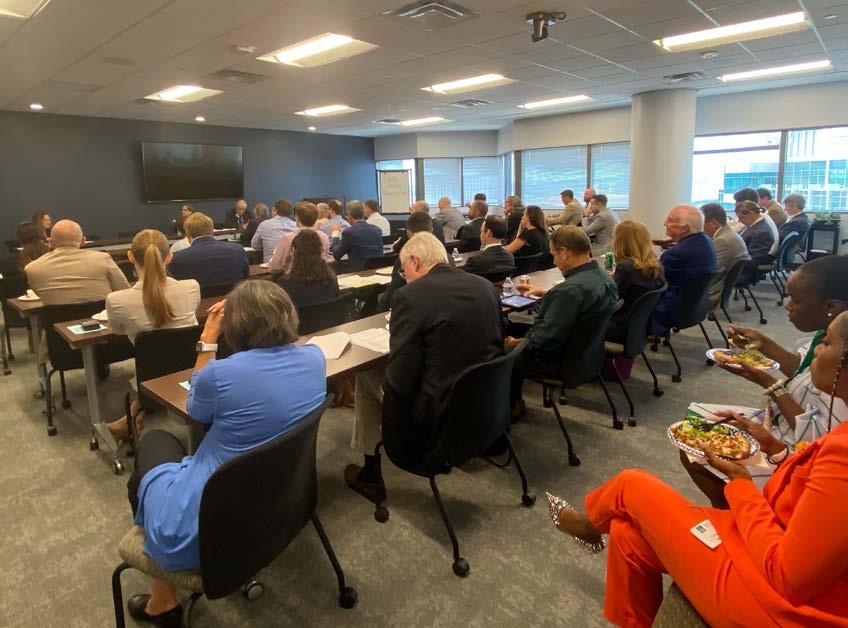
The NBA offers its conference rooms to be used for arbitrations, mediations, meetings, depositions, and other events for attorneys who need a convenient place to meet in downtown Nashville. We have a spacious Conference Center and a smaller Board Room – both of which have WiFi access, a computer, and phone – available for your use.
For more information, contact NBAFrontDesk@NashvilleBar.org or visit NashvilleBar.org/ReserveOurFacilities

How AI Undermines Law School Learning
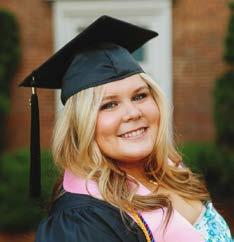
Raygan Robertson is a rising 2L at Belmont University College of Law. This summer, she is a judicial intern at Knox County General Sessions Court, where she conducts legal research and writing regarding ethics and ambiguous legislation. Her academic interests include civil procedure and domestic relations.
An overwhelmed law student is looking for a quick way to finish an assignment and has a tool at their fingertips capable of writing their memorandum for them. Generative AI tools specializing in law are now accessible in two of the leading legal research platforms: Lexis and Westlaw. By simply plugging in the background facts of an assignment, the question presented, and the assignment requirements, a law student will have their assignment completed within two minutes. While there may be a benefit of efficiency, the risks heavily outweigh the rewards. A law student chronically using generative AI to do their legal research and writing creates an unethical future attorney with a career potentially riddled with malpractice.
Ethical Violations
There are multiple ethical issues that arise from law students relying too heavily on AI. First, there is a clear violation of academic integrity.1 If a student uses an AI platform's output as their own work product without proper attribution, they have plagiarized. By relying heavily on AI, a student is stunting their critical thinking skills and undermining their own ability to produce original work.2 Consistently doing this will impede the quality of the student’s work overtime and could make them an incompetent practitioner when it comes to legal research and writing.
Second, a law student too dependent on an AI chatbot may have issues not breaking attorney client privilege.3 Young lawyers who never develop the ability to properly analyze and strategize on their own in law school, could ask chat bots questions that breach confidentiality by sharing a client’s personal data. Particularly, sharing this information on an AI platform could be considered communications in the presence
of a third party and sharing attorney work product, both of which are an immediate breach of attorney client privilege.4 Not only does this breach confidentiality, but the privacy of the client is also violated when third party AI developers store information about the client and case strategy long term without the client’s permission.5
A Future of Malpractice
Law students using AI for their work in law school risk hurting their career long term, as the constant overreliance on AI could lead to malpractice. AI has been proven to manufacture biased content.6 AI platforms learn from the data they are trained on. Therefore, if that data is discriminatory, the AI may also create output that is discriminatory.7 It has been found that AI has generated an algorithm that has discriminated on the basis of sex and race.8 This could create unequal access to justice, if attorneys are relying on AI that is inherently discriminatory to strategize and create work product for their cases.9 Students that continue to rely on AI during their career run the risk of not being aware that the platform they are using could have an active bias against their clients that may affect the outcome of their case.
AI has frequently been found to provide incorrect information also known as “hallucinating.” A Standford University study found that general chatbots, when asked legal queries, gave responses containing incorrect information up to 82% of the time.10 These hallucinations are not only present in general purpose AI databases. When testing major legal research databases’ AI features, it was estimated that incorrect information was given in responses up to 34% of the (continued on page 26)
How AI Undermines Law School Learning (cont.)

time.11 This was recently played out in court as two lawyers in New York were sanctioned for citing six nonexistent cases in their brief.12
Additionally, many AI platforms experience a “knowledge cutoff” meaning that their platforms are only updated to a certain date.13 This cutoff could have an adverse effect on a client’s case. If an attorney uses AI to compile a list of relevant case law for a case they are researching, there is a possibility that the newest, most accurate precedent could be overlooked, and the attorney would be doing a disservice to their client by not being up to date with the latest rulings. When law students reliant on AI continue doing so as practicing attorneys, they jeopardize their career. Inaccurate biases and incorrect legal information frequently seen in AI algorithms lead to malpractice lawsuits.
Moving Forward
While there are many risks to using AI in law school, many speculate that a future that is AI focused is inevitable.14 In fact, AI has already made impacts on law school and the legal profession by
speeding up the discovery process, drafting contracts, and more.15 The only way to mitigate AI’s harmful effects is by staying informed. Law schools can incorporate AI into their curriculum by briefing students on proper uses and informing them of risks. Law schools that can learn to view AI as an opportunity and not a threat will allow students to learn how to be efficient without losing their critical thinking skills and risking a future malpractice suit.
Footnotes
1 "AI & Professional Ethics," University of Illinois Law Library, last modified April 2024, https://libguides.law.illinois.edu/c. php?g=1325943&p=9760542
2 Id.
3 "Common Ethical Dilemmas for Lawyers Using Artificial Intelligence," National Jurist, https://nationaljurist.com/ smartlawyer/professional-development/ common-ethical-dilemmas-for-lawyersusing-artificial-intelligence/
4 "You Are Not Hallucinating: Risks and Problems Associated with Generative AI for Lawyers," Freeman Mathis & Gary LLP, https://www.fmglaw.com/professionalliability/you-are-not-hallucinatingrisks-and-problems-associated-withgenerative-ai-for-lawyers/
5 Id.
6 "Real-Life Examples of Discriminating Artificial Intelligence," Datatron, https:// datatron.com/real-life-examples-ofdiscriminating-artificial-intelligence/
7 "AI & Professional Ethics," University of Illinois Law Library, last modified April 2024, https://libguides.law.illinois.edu/c. php?g=1325943&p=9760542
8 "Real-Life Examples of Discriminating Artificial Intelligence," Datatron, https:// datatron.com/real-life-examples-ofdiscriminating-artificial-intelligence/
9 "Legal Ethics and AI," University of California, Davis School of Law Library, https://libguides.law.ucdavis.edu/c. php?g=1386929&p=10257661
10 "AI on Trial: Legal Models ‘Hallucinate’ in 1 Out of 6 (or More) Benchmarking Queries," Stanford Institute for HumanCentered Artificial Intelligence, https:// hai.stanford.edu/news/ai-trial-legalmodels-hallucinate-1-out-6-or-morebenchmarking-queries
11 Id.
12 Luc Cohen, "New York Lawyers Sanctioned for Using Fake ChatGPT Cases in Legal Brief," Reuters, https://www.reuters.com/ legal/new-york-lawyers-sanctioned-usingfake-chatgpt-cases-legal-brief-2023-06-22/
13 "You Are Not Hallucinating: Risks and Problems Associated with Generative AI for Lawyers," Freeman Mathis & Gary LLP, https://www.fmglaw.com/professionalliability/you-are-not-hallucinatingrisks-and-problems-associated-withgenerative-ai-for-lawyers/
14 Andrew Goudsward, "AI’s Promise, Problem for Law: Learning," Reuters, February 21, 2024, https://www.reuters.com/ legal/legalindustry/ais-promise-problemlaw-learning-2024-02-21/
15 "Artificial Intelligence in the Law Classroom: Good, Bad, or Maybe Both?" Richmond Journal of Law and Technology, January 30, 2025, https:// jolt.richmond.edu/2025/01/30/artificialintelligence-in-the-law-classroom-goodbad-or-maybe-both/#_ftn10






Office Hours: Lawyers Answer Law Students
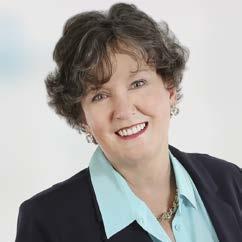
Susan McDonald, McDonald Dispute Resolution
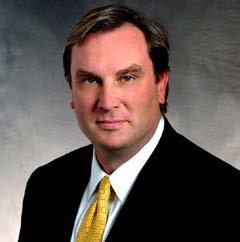

Law

Law school is like entering a tunnel with a flashlight that only illuminates a few feet ahead. You walk in confident about what matters and who you'll become as a lawyer. Three years later, you emerge blinking in the sunlight, realizing you understood far less than you thought going in, but now you're convinced you've got this whole lawyer thing figured out. That confidence will last approximately until your first real client walks through the door.
The truth is, we call it "practicing" law for a reason. Whether you're in your first year or your fortieth, you're still practicing—still learning, still getting better (hopefully), still discovering that every case teaches you something new about the law, your clients, and yourself.
This column exists to help you navigate both that tunnel and the decades of practice that follow. It’s like a professor’s office hours, only with lawyers who have been where you are and survived and continue to thrive. We’ve been around long enough to know what we don't know, and we are thrilled to be able to tackle your questions—the serious ones, the silly ones, and everything in between. Ask us anything.
What’s one thing you thought was important in law school, but turned out not to matter?
"Like many entering law school, I thought being a lawyer was all about oral advocacy—making compelling arguments in court and swaying juries with passionate speeches. I quickly discovered that courtroom dramatics
are just a small part of legal practice. The real work happens in thorough research, meticulous preparation, and creating the record that supports your case. Writing clear, persuasive briefs often determines outcomes before you ever step into a courtroom. Most importantly, I learned that effective lawyering requires critical thinking and sound judgment to analyze complex situations and determine the best strategy to serve your client's needs. The foundation of good legal practice isn't winning arguments—it's thorough preparation and strategic thinking."
Chancellor Anne Martin, Vanderbilt University School of Law, 1992
"I thought the smartest person always talked the most in class. Nope. Some of the sharpest minds in class were the quietest. Listening turned out to be a superpower. Every class will have “that person” who asks repeated questions, especially with 10 seconds before the bell rings. But don’t let that stop you. Gather up all your strength and courage to ask the questions that you need answered."
Susan McDonald, University of Mississippi School of Law, 1984
"I heard plenty of warnings before starting law school about how "cutthroat" my classmates would be, but I discovered the opposite. Yes, law school was competitive, but some of my closest professional relationships today
Deji Adeniyi, Music City
Worrick Robinson, IV, Worrick Robinson Law, PLLC
started in those study groups and late-night library sessions. Your legal career will be built on relationships and referrals—within months of starting practice, partners will ask if you know a good employment lawyer in Charlotte or Dallas or a reliable estate planning attorney in your hometown. The network you build in law school becomes your professional lifeline. Don't get so focused on beating your classmates that you forget to get to know them."
Worrick Robinson, IV, Cumberland School of Law, Samford University
"Looking back, I definitely spent too much time obsessing over the legalese and not enough time paying attention to the actual facts. My Civ Pro professor, Judy Cornett, used to say it should be called fact school, not law school—and she was right. Every legal concept stems from a real-world issue, something that happened to a person or a business that needed a solution. The law is really just a framework designed to help resolve similar issues in a consistent way (though not always perfectly). Once I started focusing more on the underlying problem instead of the terminology,
the law made a lot more sense. It’s usually not as complicated as it sounds—you just have to step back and see what’s really going on."
Deji Adeniyi, University of Tennessee Winston College of Law, 2024
Closing
We keep office hours at least once a quarter in the Nashville Bar Journal. Watch for our expanded office hours in emails and at your law school.
In the meantime, what is your favorite book or movie about law school? Email your answer to NBA_ Marketing@NashvilleBar.org with the subject line, “NBJ Office Hours.”
o The Paper Chase by John Jay Osborn
o One L: The Turbulent True Story of a First Year at Harvard Law School
o Anonymous Lawyer by Jeremy Blachman
o Legally Blonde
o I’ve never heard of any of these
o

barBites | A Festive Foray into Fall: Sausage Sweet Potato Biscuits

Tabitha Robinson is an attorney at Nashville Electric Service (NES), the eleventh largest public electric utility in the United States. At NES, Tabitha’s primary practice includes workers' compensation, bankruptcy, probate, torts, contracts, employment, policy drafting, general litigation, and internal affairs. Robinon is an active member of the Nashville Bar Association, where she served as Co-Chair of the Diversity Committee for three years and as Board Secretary in 2024. She also holds a board position with the Lawyers' Association for Women - Marion Griffin Chapter and serves as President of the Women's Political Collaborative of Tennessee.
Fall has finally arrived, or so the calendar says. Unfortunately for us Middle Tennesseans, the official start of the season doesn’t always bring crisp air and golden leaves. If you’re like me and refuse to indulge in anything pumpkinspiced until the high temperature dips below your thermostat setting (mine’s at 67°, in case you’re wondering), might I suggest the following pairing? These happy hour recipes bring together some of fall’s best flavors—sweet potatoes, sage, and maple—without going full-blown autumnal overload.
Ingredients
1 lb ground pork sausage
1 cup mashed sweet potatoes (from 1-2 boiled and peeled sweet potatoes)
½ cup whole milk
1 ⅔ cups all-purpose flour
2 tbsp cornstarch
2 ½ tbsp white sugar
1 tbsp baking powder
1¼ tsp salt
1 stick cold unsalted butter, cut into small cubes
Directions
Preheat oven to 425°F. Line a baking sheet with parchment paper. In a large bowl, whisk together the mashed sweet potatoes and milk.
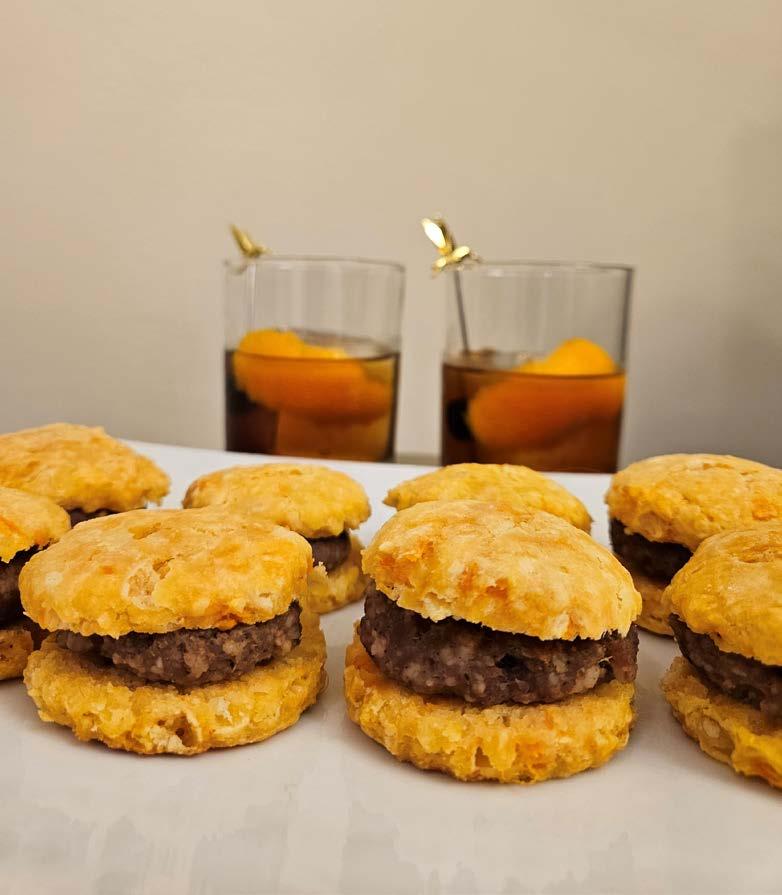
In another bowl, whisk together the flour, cornstarch, sugar, baking powder, and salt. Add the cold butter and use a pastry cutter to create a coarse, crumbly texture.
Add the dry mixture to the sweet potato mixture. Fold gently until just combined; it’s important not to overwork the dough.
Lightly flour a clean surface. Turn the dough out and knead until it forms a ball.
Pat the dough into a ¾-inch thick rectangle. Cut into thirds, stack the pieces, and pat into a rectangle again. Repeat once more.
Use a 1½-inch biscuit cutter to cut out the biscuits. Transfer them to the prepared baking sheet.
Bake for 10-12 minutes, until golden on top and bottom.
While the biscuits bake, form 18 small patties with the ground sausage and cook to your preference (I pan-fry mine.)
Once the biscuits have slightly cooled, slice them open with a paring knife and tuck a sausage patty inside.
Serve warm with your maple old fashioneds. Enjoy your first foray into fall, and may it be the start of many cozier, cooler evenings! n
Meet Us at the Bar Maple Old Fashioneds

Ingredients
3oz good bourbon (I suppose “good” is subjective here, but I like Woodford Reserve Double Oaked for this recipe; its notes of dark caramel, hazelnut, apple, and spice pair beautifully with the maple.)
1-1½oz good maple syrup (“Good” is not subjective in this instance. 100% pure maple syrup is necessary.)
2 dashes Angostura bitters
2 dashes orange bitters
2 orange peels
2 Luxardo cherries
Directions
Fill a cocktail mixer halfway with ice. Add the bourbon and maple syrup. Add both bitters.
Stir to combine, but don’t overdo it; we want to chill the mixture without diluting it.
Prepare two rocks glasses with ice. (I’m all about an aesthetic drink, so I use a special ice mold that makes clear cubes, but regular ice is fine.)
Drop a Luxardo cherry into each glass. Strain the bourbon mixture evenly into the glasses.
Twist an orange peel over each drink to release the oils, then drop it in.
Serve with your sausage sweet potato biscuits. n

The Deepfake Dilemma: The Ongoing Battle Between Deepfakes and Free Speech
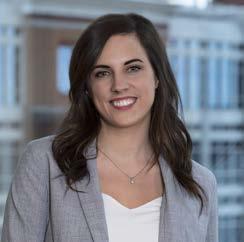
Hayley Vos is a Partner at Ortale Kelley where she successfully represents clients in a wide range of litigation matters. Hayley has a deep understanding of insurance law and extensive courtroom experience as she has tried many jury and bench trials across the state. Hayley’s experience spans across multiple areas of litigation, including insurance defense litigation and workers’ compensation. She has also focused on real property matters related to homeowners’ association litigation, Fair Housing Claims, and real estate closings. In her free time, she enjoys exploring Nashville and spending time with her husband Jordan, her two kids, and their dog Penny.
Celebrities commonly rely on the commercial use of their image, with many earning more from the use of their likeness through endorsements than they do from using their actual talent.1 This extends to all types of celebrities, such as athletes, politicians, entertainers, musical artists, and influencers. The idea of what makes someone a celebrity has changed over the years. One blogger notes that, “Today, anyone with a substantial social media following can be dubbed a celebrity.”2 The influencer industry itself has grown from a $1.7 billion industry in 2016 and is now projected to reach over $16.4 billion.3
The Growing Threat of Deepfakes
While the use of Artificial Intelligence can help some industries grow their profits, many celebrities are negatively impacted by the unauthorized use of artificial images online. These “deepfakes” are used for many different purposes; some are relatively harmless, such as a funny meme. However, many are used with ill intent to further fraudulent schemes, to influence public opinion, or to promote hateful speech. Celebrities are concerned not only about revenue loss, but also about their likeness being used to scam others, spread messages that do not reflect their views, and threaten their privacy and safety, as well as the safety and security of the public at large. As a result, many celebrities are pushing for continued efforts to help limit and prosecute these deep fakes. Since AI is becoming increasingly advanced, it is often difficult for the public to differentiate between what is real and what is fake. For example, a woman in France lost $850,000 after scammers used AI generated images of Brad Pitt to con her into thinking she was communicating with him and helping him.4 Taylor Swift has continued to be a target of deepfakes, with an AI pornographic image
getting over 47 million views before being removed.5 Steve Harvey has been impacted by deepfakes over the years, and is quoted as saying, “It’s freedom of speech, it’s not freedom of ‘make me speak the way you want me to speak. That’s not freedom, that’s abuse.”6 Dan Neely, the CEO of Vermillio, stated that “back in 2018 there were maybe 19,000 pieces of deepfake content. Today, there are roughly a million created every minute.” 7
Legislative Response to Deepfakes
In response to the growing concerns over deepfakes and continuous calls by celebrities for action, a bipartisan group of senators introduced the NO FAKES Act of 2024 (Nurture Originals, Foster Art, and Keep Entertainment Safe Act). This Act aims to penalize those for creating deepfakes and requires social media sites to take down flagged content.8
On May 22, 2025, the Senate held a hearing on AI Deepfakes and the NO FAKES Act. In addition to creating penalties, the bill would give people a property right over AI-generated replicas of them and create a notice-andtakedown mechanism so they can request deepfakes be removed from online platforms.9 Under the NO FAKES Act, there is no violation if the digital replica is used in bona fide news, public affairs, sports broadcasts, documentaries, or historical/biographical portrayals, commentary, criticism, scholarship, satire, parody, etc.10
On May 19, 2025, President Trump signed into law the TAKE IT DOWN Act. The TAKE IT DOWN Act makes it illegal to share images of other people they do not consent to be shared, but it also takes one step further and makes it illegal to share artificially generated images.11
States Taking Action
Not only is the federal government working to fight

against deepfakes, but over the years more states have begun to introduce and enact AI-related legislation.12 Tennessee has continued to introduce legislation related to the unauthorized use of deepfake or actual likeness (SB1346/HB1299). Additionally, on March 21, 2024, the ELVIS Act (Ensuring Likeness Voice and Image Security Act) was signed into law by Governor Bill Lee. The purpose of the Act is to protect musicians from unauthorized usage of AI.13 Specifically, the law has been expanded to cover “new, personalized generative AI cloning models and services that enable human impersonation and allow users to make unauthorized fake works in the image and voice of others.14
Critics of Legislation
However, not all responses to AI targeted legislation are positive. The largest criticism of the NO
FAKES Act and other AI legislation is that it limits free speech over the internet. While there are carve-outs for parody, satire and commentary, many feel the legislation will create a “chilling” effect to those afraid of prosecution. Other critics feel the proposed NO FAKES Act is too broad and would lead to many platforms erring on the side of over-censoring content.15 Additionally, critics believe that many of the privacy concerns are already addressed under existing legislation, and that the NO FAKES Act could instead lead to misinformation, extensive litigation, and burdens First Amendment Protected Speech.16 Where do we draw the line? Would it matter to you if your name, image, and likeness were used without your consent to promote views you do not support? Technology will continue to advance faster than our laws can adapt, and only time will reveal the true impact of deepfakes on privacy, safety, and free speech.
Footnotes
1 “All the Times Celebs Have Said They Made More Money from Endorsements Than Their Actual Talent,” Essence, https:// www.essence.com/news/money-career/ celebs-money-endorsements/
2 “6 Types of Compensation for Celebrity Endorsement Deals,” Booking Agent Info Blog, https://blog.bookingagentinfo. com/6-types-of-compensation-forcelebrity-endorsement-deals/
3 “All the Times Celebs Have Said They Made More Money from Endorsements Than Their Actual Talent,” Essence.
4 Clare Duffy, “Celebrity AI Deepfakes Are Flooding the Internet. Hollywood Is Pushing Congress to Fight Back,” CNN Business, March 8, 2025, https://edition.cnn. com/2025/03/08/tech/hollywood-celebritydeepfakes-congress-law
5 Alex Hern, “Inside the Taylor Swift
Deepfake Scandal: ‘It’s Men Telling a Powerful Woman to Get Back in Her Box,’” The Guardian, January 31, 2024, https:// www.theguardian.com/technology/2024/ jan/31/inside-the-taylor-swift-deepfakescandal-its-men-telling-a-powerfulwoman-to-get-back-in-her-box
6 Id.
7 Clare Duffy, “Celebrity AI Deepfakes Are Flooding the Internet. Hollywood Is Pushing Congress to Fight Back,” CNN Business, March 8, 2025.
8 “The Pros and Cons of the NO FAKES Act,” American Action Forum, https://www. americanactionforum.org/insight/thepros-and-cons-of-the-no-fakes-act/.
9 Id.
10 Id.
11 “Understanding NO FAKES Act Introduced by U.S. Senators,” National Law Review, https://natlawreview.com/article/closerfederal-right-publicity-senate-introducesno-fakes-act
12 “A Closer, Local Look at the TAKE IT DOWN Act,” WDIO News, https://www. wdio.com/front-page/top-stories/a-closerlocal-look-at-the-take-it-down-act/
13 “Artificial Intelligence 2025 Legislation,” National Conference of State Legislatures, https://www.ncsl.org/ technology-and-communication/artificialintelligence-2025-legislation
14 “Artificial Intelligence and Copyrights: Tennessee’s ELVIS Act Becomes Law,” Armstrong Teasdale LLP, https://www. armstrongteasdale.com/thoughtleadership/artificial-intelligence-andcopyrights-tennessees-elvis-act-becomeslaw/
15 Id.
16 “CDT Joins Letter Opposing NO FAKES Act,” Center for Democracy and Technology, https://cdt.org/insights/cdtjoins-letter-opposing-no-fakes-act/
17 “Coalition Letter Outlines Serious Concerns with the NO FAKES Act,” R Street Institute, https://www.rstreet.org/outreach/ coalition-letter-outlines-serious-concernswith-the-no-fakes-act/






ADVERTISE IN THE
ADVERTISE IN THE ADVERTISE IN THE
IN THE
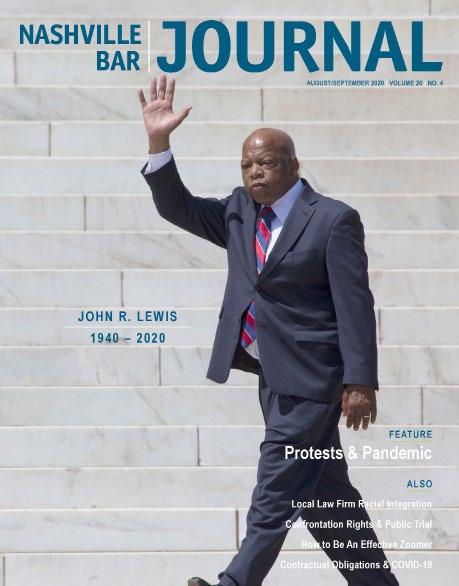

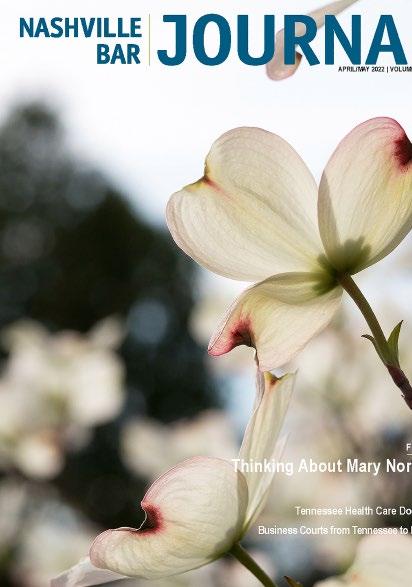

Nashville Bar Association’s official award-winning, quarterly magazine—published exclusively up-to-date information to over 2,500 attorneys and legal professionals across the Nashville platforms, be sure to take advantage of this opportunity to target Nashville’s legal market and
The Nashville Bar Journal is the Nashville Bar Association’s official award-winning, quarterly magazine—published exclusively for NBA members—that delivers relevant and up-to-date information to over 2,500 attorneys and legal professionals across the Nashville area. Published in both print and digital platforms, be sure to take advantage of this opportunity to target Nashville’s legal market and increase your company’s visibility!
Nashville Bar Association’s official award-winning, quarterly magazine—published exclusively up-to-date information to over 2,500 attorneys and legal professionals across the Nashville platforms, be sure to take advantage of this opportunity to target Nashville’s legal market and
Contact Adrienne Bennett Cluff, our Marketing & Communications Coordinator, at Adrienne.BennettCluff@NashvilleBar.org





“Should I Stay or Should I Go?”: AI and The Creative Industry
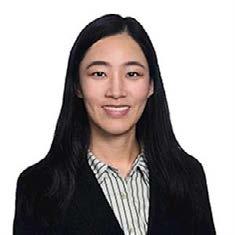
Yuming (Violet) Zhang is an associate at Buchalter, P.C. and a member of the intellectual property group. Violet earned her J.D. from Vanderbilt Law School, and regularly volunteers at pro bono legal clinics serving artists, musicians, and other creatives. In her free time, she enjoys going to concerts and exploring the best Asian food spots in town.
The first half of 2025 has brought a wave of new developments, ongoing lawsuits, and evolving conversations at the intersection of artificial intelligence (“AI”) and the creative industries. Artists have begun to explore how to harness the power of AI, such as Timbaland’s new AI-focused entertainment venture Stage One,1 which introduced its first-ever AI artist. At the same time, creative professionals continue to challenge AI companies in court, as seen in recently filed lawsuits by Disney and Universal Studios against Midjourney over the use of AI to generate images.2
exclusively for NBA Nashville area. and increase
More notably, in late June, two federal court decisions have finally offered some insights on how courts might treat copyright disputes between the creative world and the AI industries and how fair use doctrine should be interpreted.
Recent Case Development
As the lawsuits against AI developers continue to grow, the main disputes focus on copyright infringement versus the fair use doctrine. These two recent federal court decisions both ruled in favor of AI companies, finding their use of copyrighted material to train large language models (LLMs) qualified as fair use.
Fair use, as an affirmative defense to copyright infringement, is at the center of these two rulings and most of the unresolved copyright disputes. In both lawsuits—Bartz et al. v. Anthropic PBC ("Anthropic") and Kadrey et al. v. Meta Platforms, Inc. ("Meta")— authors claimed that their books were illegally used to train AI models. The court applied the classic fourfactor test for fair use: (1) the purpose and character

of the use, (2) the nature of the original work, (3) the amount of the work used, and (4) the effect on the market for the original. Among these factors, the first and fourth factors usually play more important roles. Both courts found in favor of the AI companies on the first factor, concluding that using books to train AI models is highly transformative. Rather than merely copying or replacing the original works, the AI companies used the books to train models that can perform a wide range of functions and generate diverse text. In Meta, the court described the LLMs as “innovative tools” serving a very different purpose from the books themselves.3
"Two federal court decisions have finally offered some insights on how courts might treat copyright disputes between the creative world and the AI industries and how fair use doctrine should be interpreted."
The two rulings diverged slightly in how they handled the issue of pirated materials. In Anthropic, Judge Alsup stated that training LLMs with legally acquired copyrighted works could be fair use, but left open the possibility that using pirated copies might lead to infringement. In Meta, the court took a broader view and did not treat the legality of acquisition as central to the fair use question, finding the use transformative regardless of how the materials are acquired.
(continued on page 36)
"Should I Stay or Should I Go?" (cont.)

The courts also landed to the similar conclusions on the fourth factor. In Anthropic, the judge reasoned that the training data “did not result in exact copies or even knockoffs of [author’s] works being provide to the public.”4 The court also compared the complaint of this case to situations where teaching students to write can flood the market with competing books. In Meta, the court treated market effect as the most important factor and found that the plaintiffs failed to show any actual harm or loss of income caused by the LLM outputs. Both courts emphasized that fair use is a fact-specific analysis and warned that the outcome could change if the models were found to reproduce close substitutions of the original works in the market. Importantly, neither court addressed whether the outputs of these models, originated from AI, could themselves infringe copyright, leaving that key issue unresolved for now.
Potential Impact on Music Industry
The legal outcomes in cases like Anthropic, which upheld the fair
use defense for using copyrighted material to train AI models, may influence how other creative industries, including the music industry, make decisions on future steps of their relationships with AI. It’s likely that more conversations about coexistence of traditional creatives and AI-products are about to emerge, as we’ve already been seeing these days.
As reported in early June 2025, Universal Music Group, Warner Music Group, and Sony Music Entertainment began licensing negotiations with AI companies Suno and Udio.5 Despite those parties’ ongoing lawsuits, these three music companies are seeking royalty payments and modest equity stakes, implying a shift from purely legal confrontation toward businessbased solutions. These talks followed similar licensing agreements between OpenAI and media outlets like News Corp., the Associated Press, and Vox Media.
To this day, there is no comprehensive federal legislation or regulations in the US that regulate the development of AI or specifically prohibit or restrict their use.
Regulators at state level, however, are introducing a number of bills aimed at regulating AI, like Tennessee’s ELVIS Act, which establishes strong protections for individual voice, image and likeness against unauthorized artificial intelligencederived deep fakes and voice clones, and California’s Assembly Bill 1836, which requires AI platforms to obtain content of deceased personality’s estate before creating digital replica of such personality.
With new technologies developing faster than how the law can adapt, the mentioned cases are just the beginning of a long road ahead for AI, creators, and courts alike.
Footnotes
1 Tim Ingham, "Timbaland Launches AI Music Company Stage Zero with First AI Artist, Tata," Music Business Worldwide, June 24, 2025, https://www. musicbusinessworldwide.com/timbalandlaunches-ai-music-company-stage-zerowith-first-ai-artist-tata/
2 Ayana Archie, "AI, Disney, Universal, MidJourney Face Copyright Infringement Lawsuit," NPR, June 12, 2025, https:// www.npr.org/2025/06/12/nx-s1-5431684/ ai-disney-universal-midjourney-copyrightinfringement-lawsuit
3 Kadrey et al. v. Meta Platforms, Inc., No. 23-cv-03417, Doc. No. 598 (N.D. Cal. June 25, 2025).
4 Bartz et al. v. Anthropic PBC, No. 24-cv05417, Doc. No. 231 (N.D. Cal. June 23, 2025).
5 Ben Kisner, "Record Labels in Talks to License Music to AI Firms Udio, Suno," Bloomberg, June 1, 2025, https://www. bloomberg.com/news/articles/2025-06-01/ record-labels-in-talks-to-license-musicto-ai-firms-udio-suno?embeddedcheckout=true
Continued Legal Education (CLE)
The NBA is your source for cutting edge, quality continuing education. We provide more than 600 hours of live and distance learning programming while offering our members discounted rates. For a complete calendar, full seminar agendas, and registration, visit NashvilleBar.org/CLE
September 16 | Virtual Seminar
Ethical Considerations for Lawyers Using AI with Oliver Roberts
OVERVIEW
Stay up to date with the latest ethical guidance and technology practices for AI in legal practice. This CLE reviews cutting-edge AI advancements, confidentiality, accuracy, and compliance challenges, providing lawyers with practical insights to navigate AI responsibly in 2025. In an era of rapid technological innovation, AI continues to transform legal practice. This CLE offers an in-depth review of the latest ethical guidance and technology considerations for lawyers using AI in their work. Designed to address emerging challenges and opportunities, the program equips legal professionals with the knowledge to navigate AI responsibly and effectively.
PRESENTER

Oliver Roberts, Holtzman Vogel
DETAILS
Seminar 12:30pm - 1:30pm
September 19
| Virtual Seminar
Microsoft Word Power Tips for Legal Professionals Part II
A Master Series Presented by the Nashville Bar Association
OVERVIEW
Due to the complex formatting often required with legal documents, many (most) legal users find Microsoft Word to be a constant source of irritation. It's the primary tool used to produce work product, yet many feel it works against them. Using Word and “clicking around” provides little improvement and no insight. This seminar is designed by a lawyer for lawyers to specifically address these realities. We’ll show you how to fix the common legal drafting problems plaguing you now and avoid them in the future. You’ll learn dozens of tips and techniques you can put into practice immediately. Even if you think you already know Word well, you will learn new things throughout this seminar.
PRESENTER
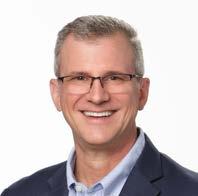
Barron K. Henley, Affinity Consulting
DETAILS Seminar 12:30pm - 2:30pm
COST
FREE for Members as part of NBA Member Appreciation Month!
Continued Legal Education (CLE)
September 24 & 25 | Live Seminar
Government Practice Institute
OVERVIEW
For more than 20 years, the NBA has provided government attorneys with exceptional CLE. We look forward to continuing to provide you with high-quality programs focused on government practice issues. These seminars will offer government-specific CLE programming and credit.
This year, join us for a happy hour at Von Elrod's immediately following Day 1.
PRESENTER
For a full agenda, visit NashvilleBar.org/Government
DAY 1 DETAILS
Seminar 9:00am - 4:00pm
October 2 | Virtual Seminar
The Resilient Advocate
Mastering Sleep for Optimized Judgment, Burnout Reduction, and Sustainable Wellness
OVERVIEW
Explore the powerful connection between sleep health and executive function, highlighting how sleep deprivation can impair decision-making, concentration, and emotional regulation; key abilities required in legal practice. In addition to wellness, this session will include an ethics component examining how chronic sleep issues may compromise an attorney’s ability to meet professional obligations under the Rules of Professional Conduct.
PRESENTER

Joshua Lennon, MD, Well Rested MD DETAILS
DAY 2 DETAILS
The NBA is your source for cutting edge, quality continuing education. We provide more than 600 hours of live and distance learning programming while offering our members discounted rates. For a complete calendar, full seminar agendas, and registration, visit NashvilleBar.org/CLE New! New!
..9:00am - 3:15pm
Continued Legal Education (CLE)
October 8 | Live Seminar
Legal Technology: Building a Modern Law Office
OVERVIEW
In today's rapidly evolving legal landscape, technology is no longer optional—it's essential for delivering effective client service while maintaining competitive advantage. Whether you're a practice owner looking to streamline operations or a firm leader planning enterprise-wide technology initiatives, this session will provide practical guidance for navigating the complex world of legal technology with confidence.
Immediately following the seminar, join us for a happy hour at Nashville Barrel Co.
PRESENTERS
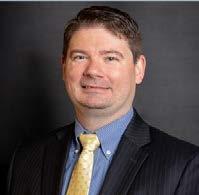
Alan Sielbeck, President/CEO Safe Network Solutions


Austin Carr, Safe Network Solutions
Jesse Harbison, Jesse Harbison Law PPLC
October 9 | Live Seminar
The AI Legal Lab: Tools, Ethics, and Transformation
OVERVIEW
Explore the ethical issues surrounding the use of AI in legal practice, particularly focusing on concerns such as the potential waiver of attorney-client privilege when AI tools are used to communicate with clients or summarize confidential meetings, as well as the discoverability of AI-generated summaries and records.
Join us for a happy hour following the seminar, from 4:30pm5:30pm.
Sponsored by Pinnacle Financial Partners
PRESENTERS

Bill Ramsey, Womble Bond Dickinson

Susan McDonald, McDonald Dispute Resolution

Michael Johnson, Johnson, Evans, & Headrick, P.C.
Continued Legal Education (CLE)
The NBA is your source for cutting edge, quality continuing education. We provide more than 600 hours of live and distance learning programming while offering our members discounted rates. For a complete calendar, full seminar agendas, and registration, visit NashvilleBar.org/CLE.
October 23 | Live Seminar
Estate Planning and Probate Institute
OVERVIEW
The NBA Estate Planning and Probate Committee is pleased to present their annual Estate Planning and Probate Practice Institute.
PRESENTER
For a full agenda, visit NashvilleBar.org/EPPInstitute
- 5:00pm
November 12 | Virtual Seminar
Legal Lifelines: Guiding Clients Through the Senior Years
OVERVIEW
As people age, they face a unique set of legal, financial, and healthcare challenges that require thoughtful guidance. From estate planning and long-term care to guardianship and elder abuse prevention, it's essential to understand the key legal issues affecting seniors today.
PRESENTER
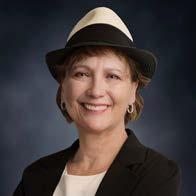
Barbara Moss, Elder Law of Nashville PLC
Continued Legal Education (CLE)
November 12 | Live Seminar
The Comedy of Ethics
OVERVIEW
Join the Nashville Bar Association and the Nashville Shakespeare Festival for The Comedy of Ethics: a one-of-akind CLE that brings legal ethics to life through the timeless works of William Shakespeare. Watch professional actors from the Nashville Shakespeare Festival perform powerful scenes from Measure for Measure, King Lear, and more, all woven into an engaging, theatrical exploration of the ethical challenges lawyers navigate every day. Don’t miss this unique blend of drama, insight, and education — where the Bard meets the Bar!
DETAILS
Seminar
* Accreditation Pending
1:00pm - 4:15pm
School of Law
Tuesday, October 28
Family Law Institute 2025
Nashville Bar Association Office
Thursday. November 6
The Nashville Bar Association's Annual Free Historical CLE Metro Government: The Best Idea Nashville Ever Had Fifth + Broadway
Thursday. November 21
Annual Ethics, Lies, and Videotape Part XXIII
Nashville Bar Association Office
Friday. December 5
Annual Entertainment, Sports & Media Law Institute
Nashville Bar Association Office
Wednesday. February 18
Current Issues in Wildlife and Hunting Law 2026
Music City Center



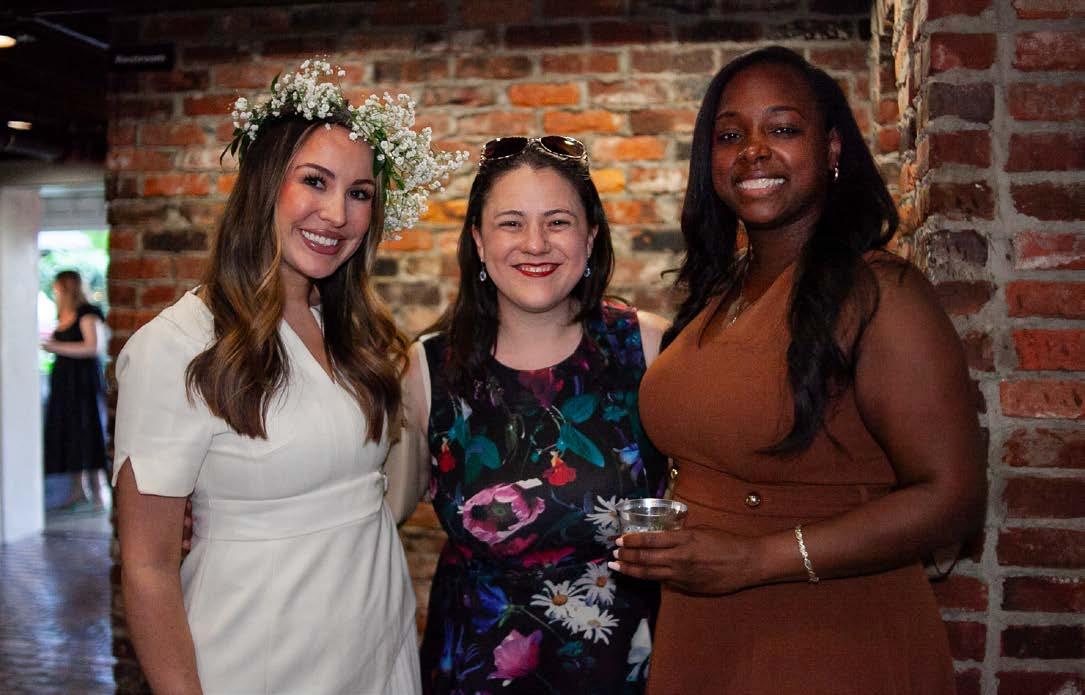





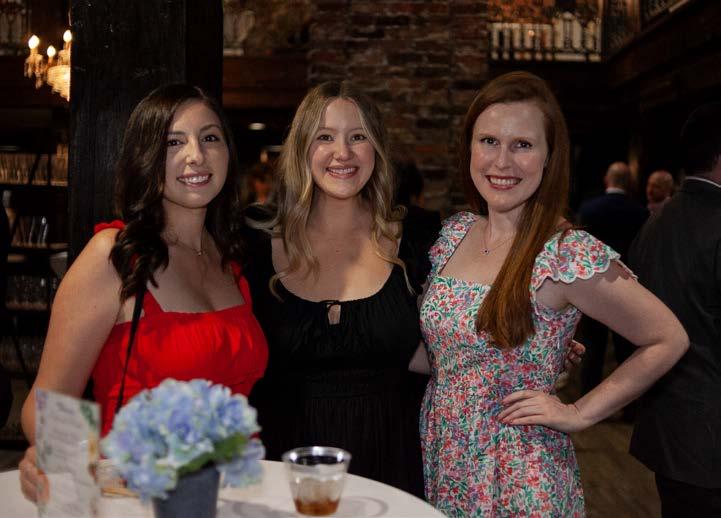
Happy Hours | June 2025
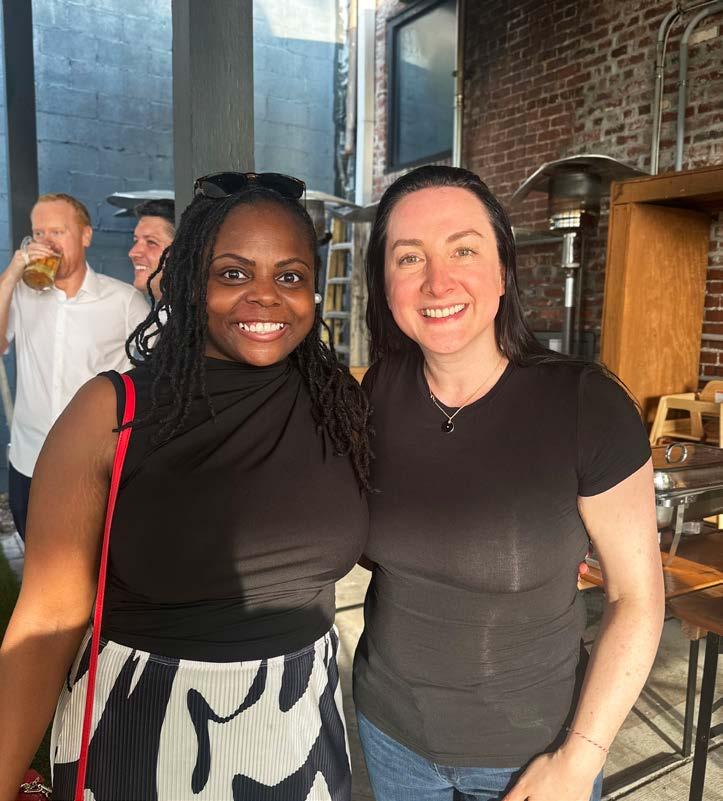



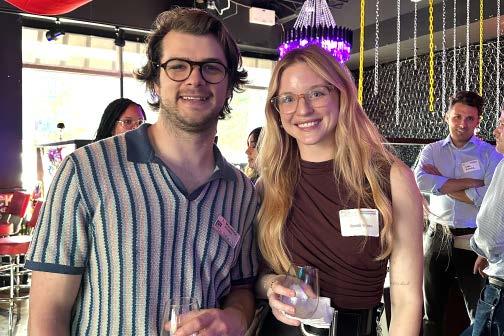





Let's Go Out to the Ballgame | June 21, 2025


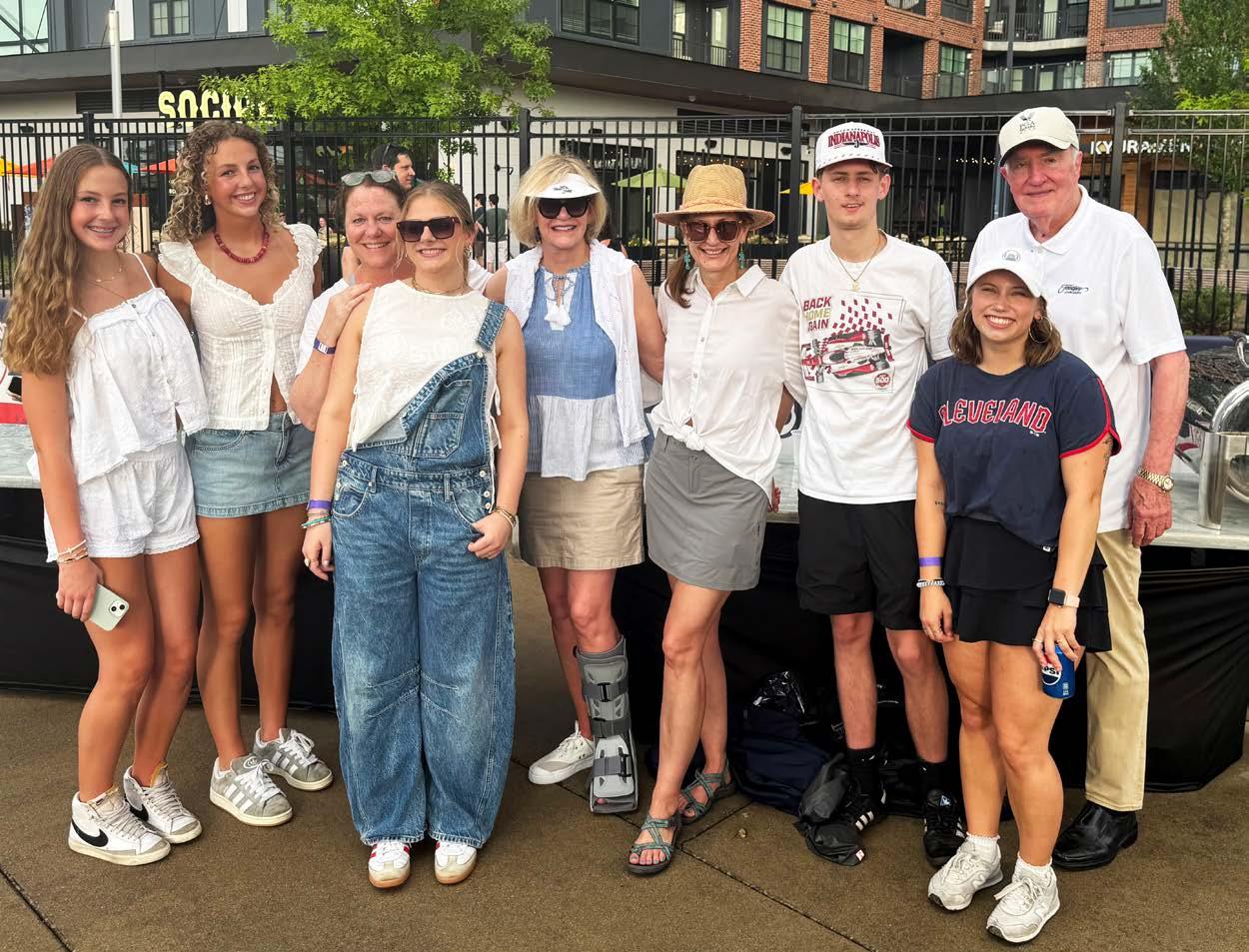
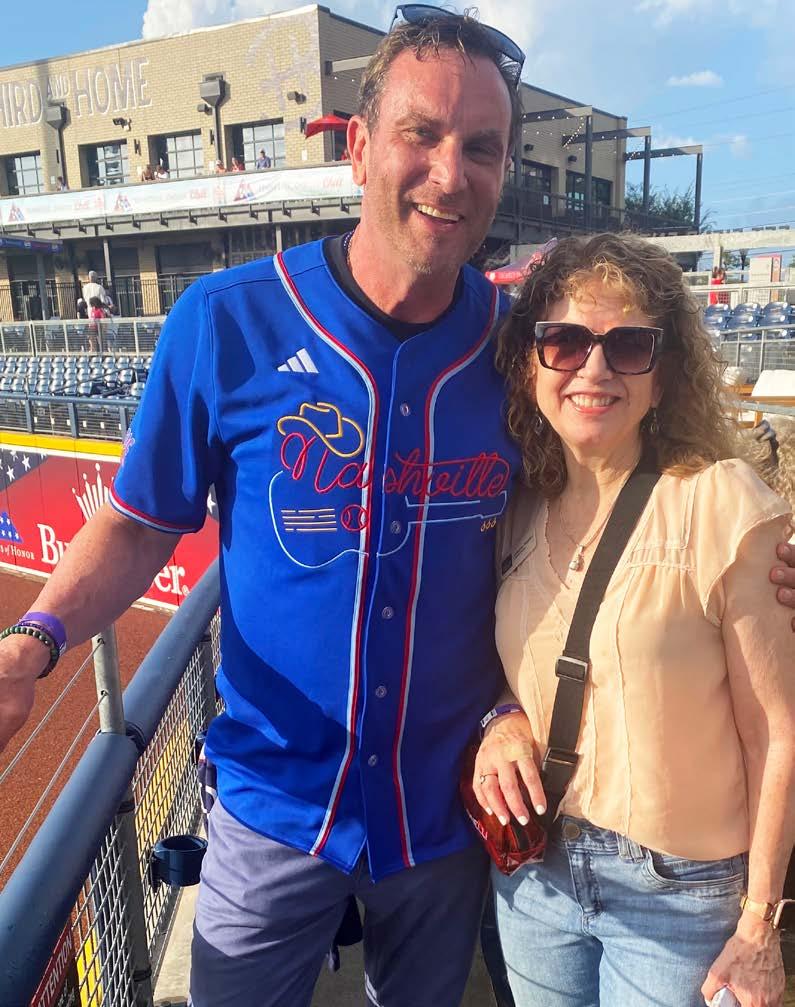
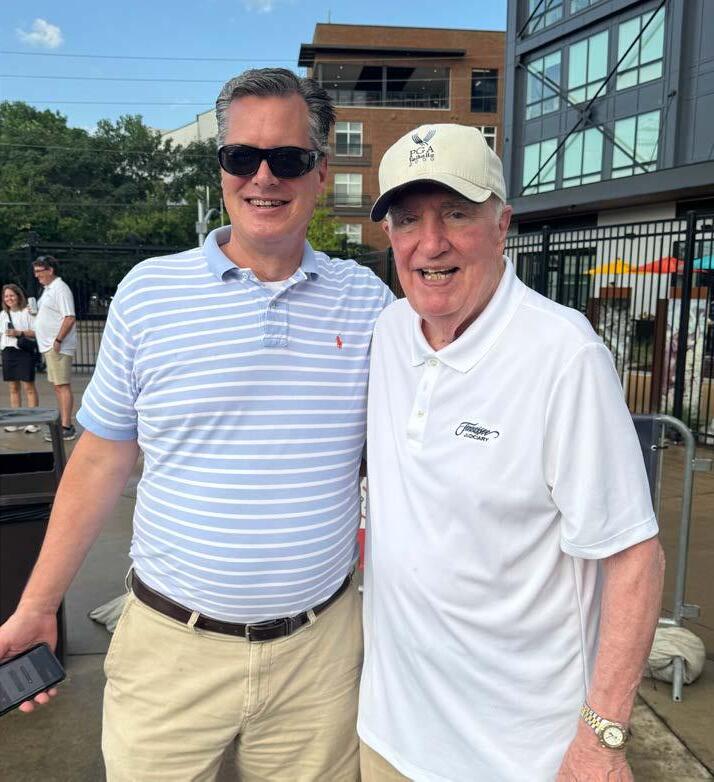



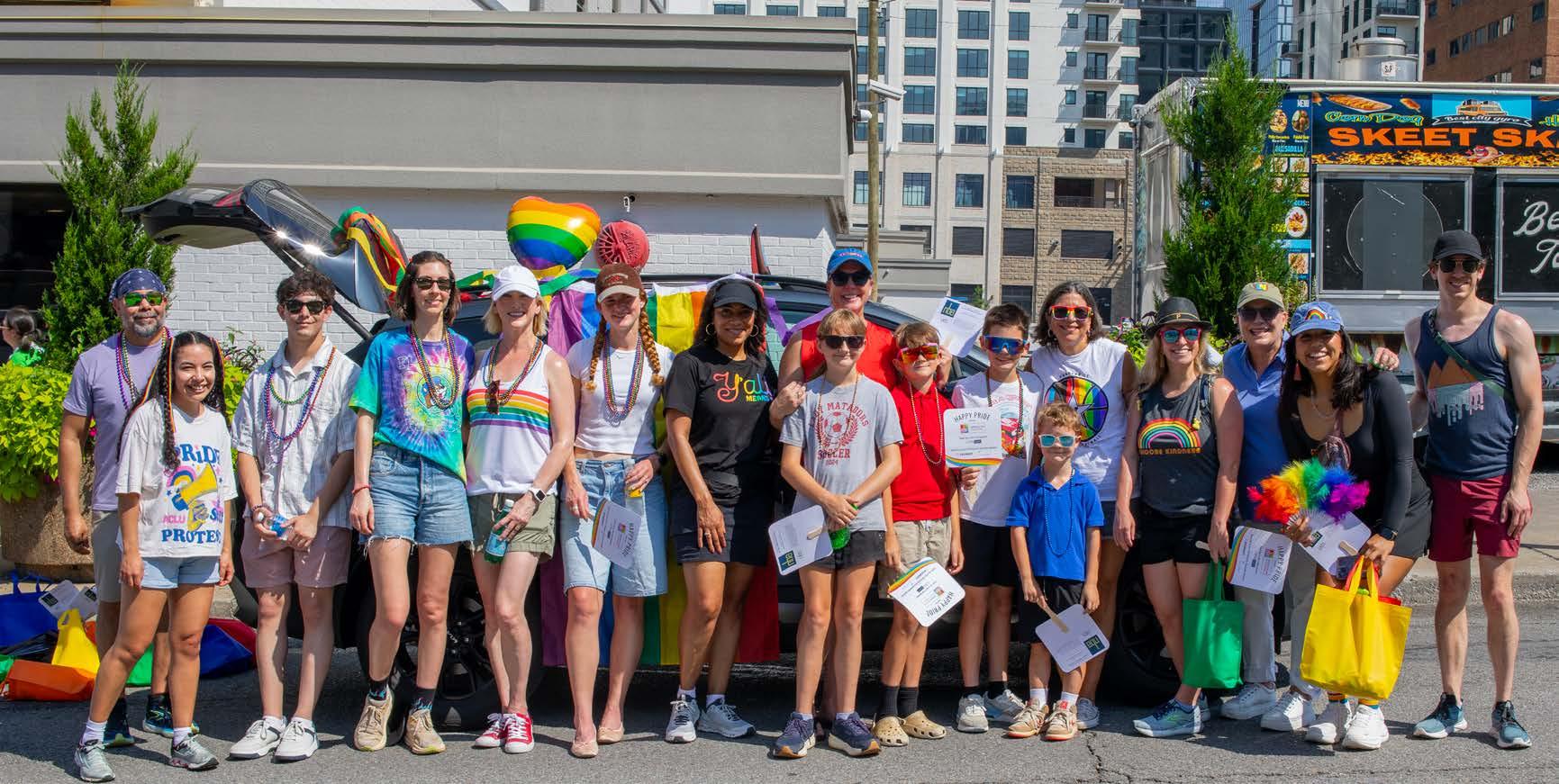
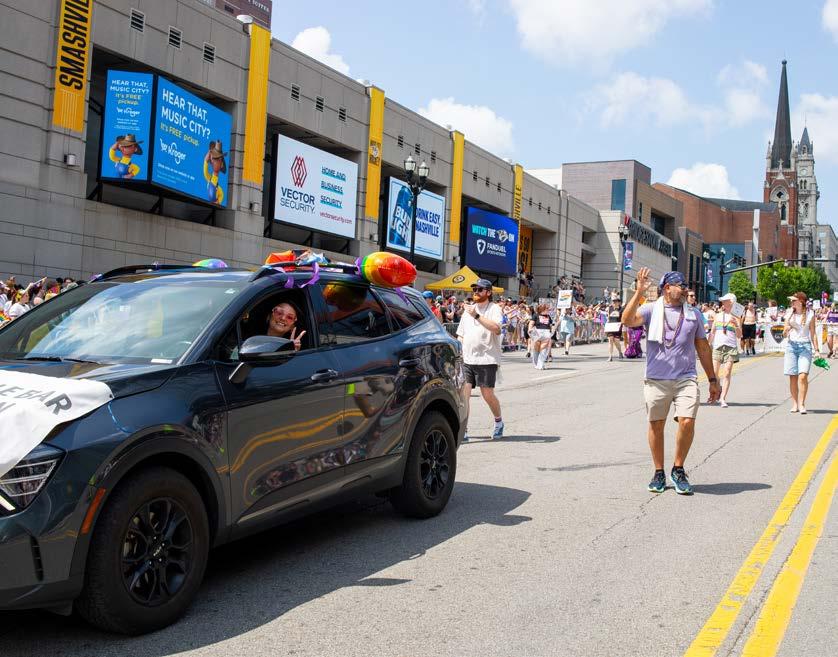
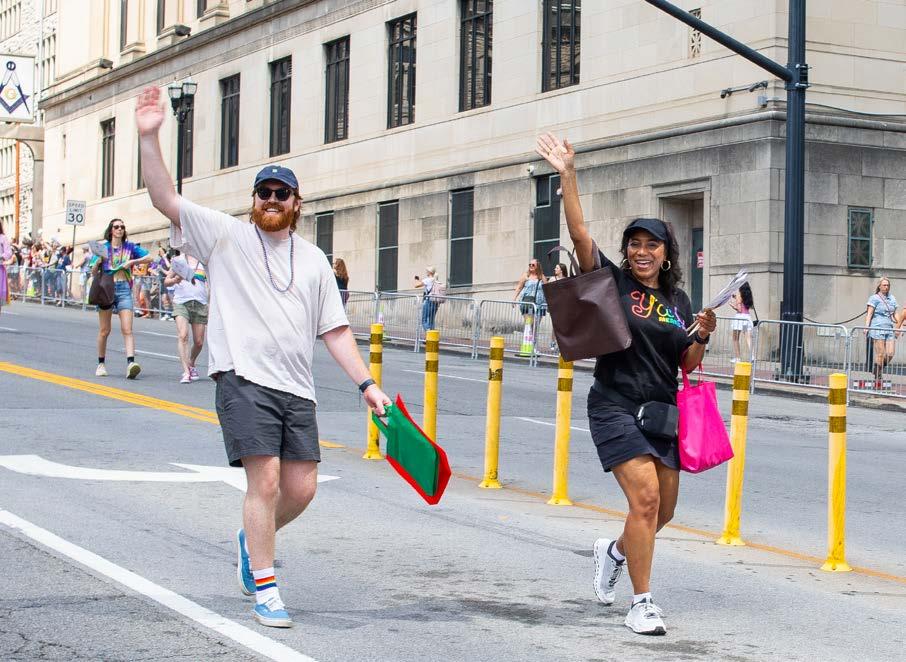
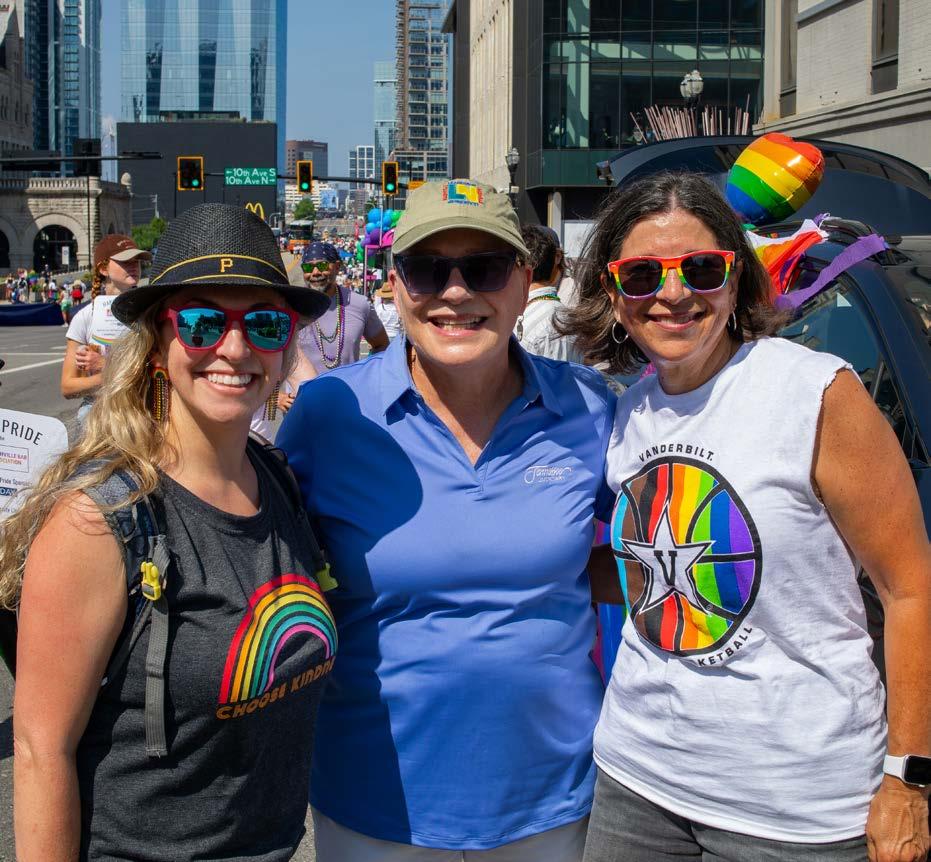
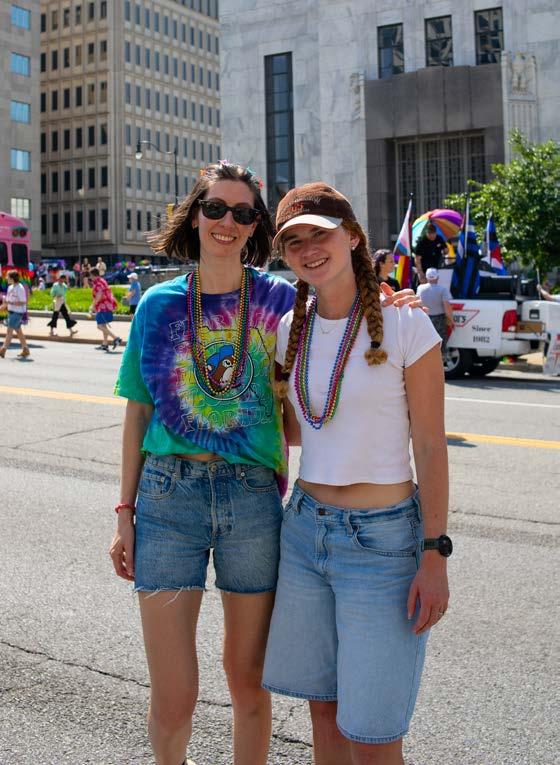


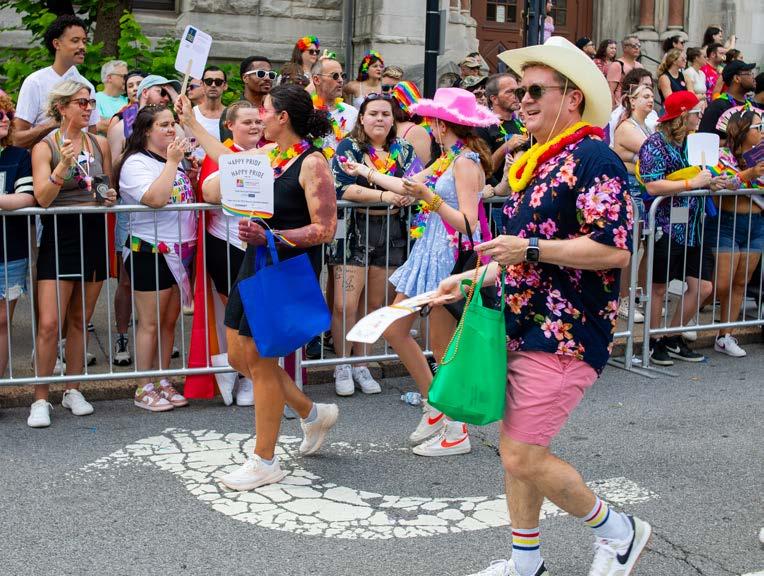

Summer Break Happy Hour | July 17, 2025

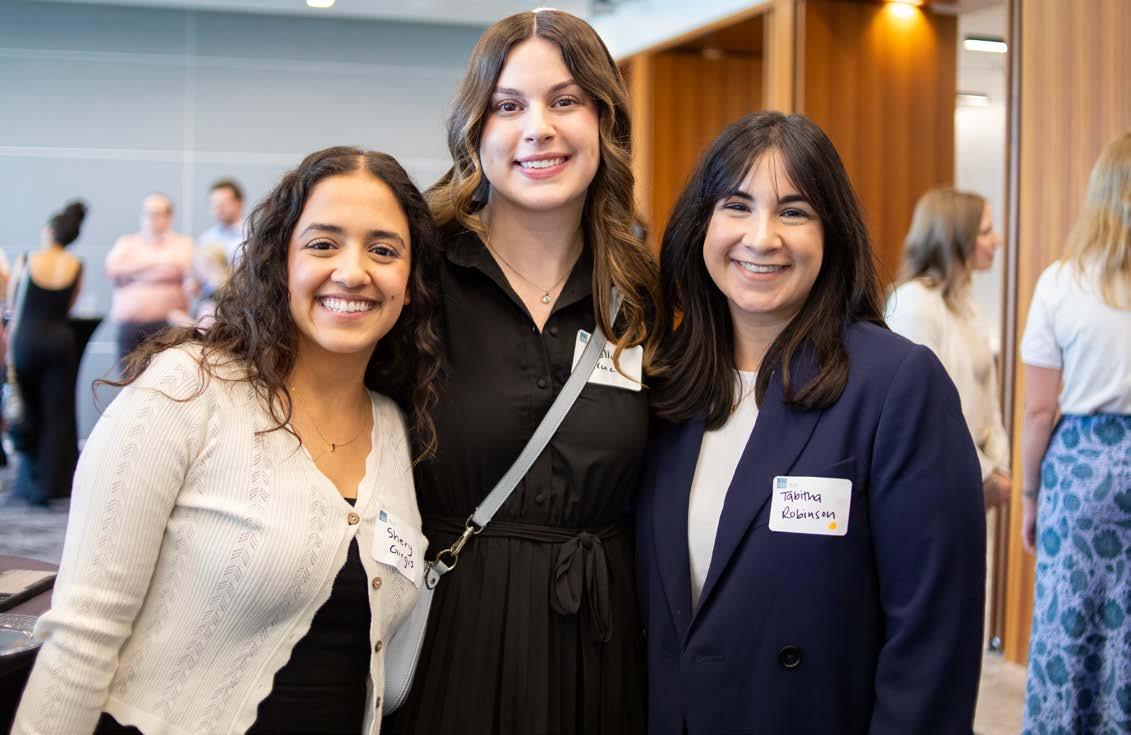


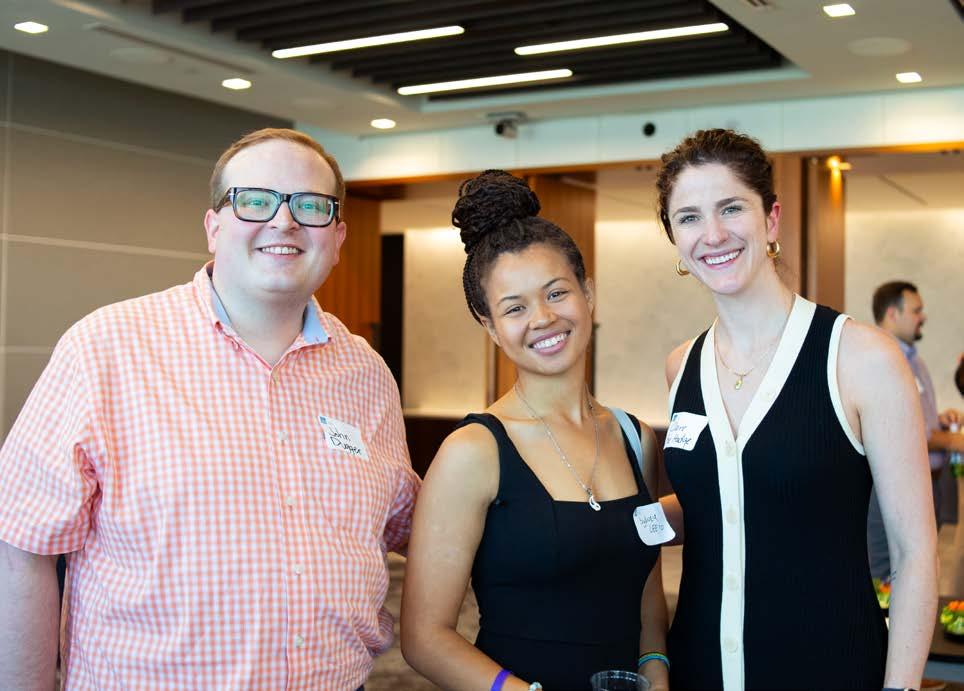

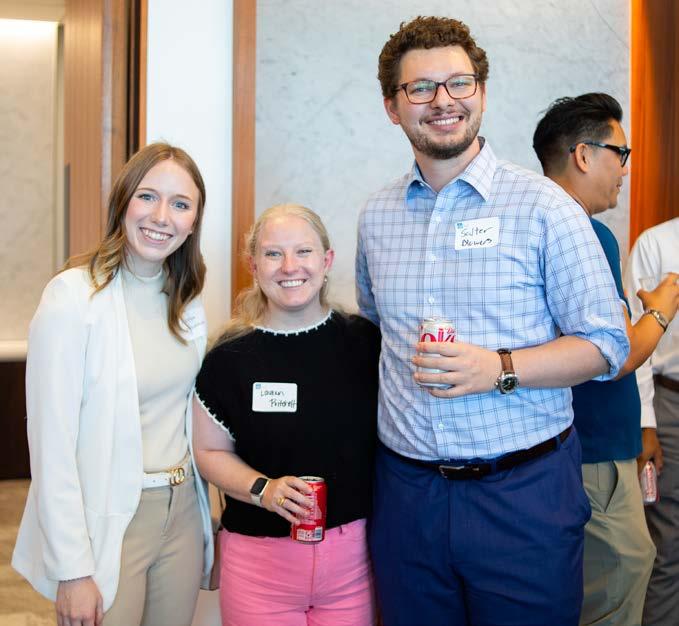


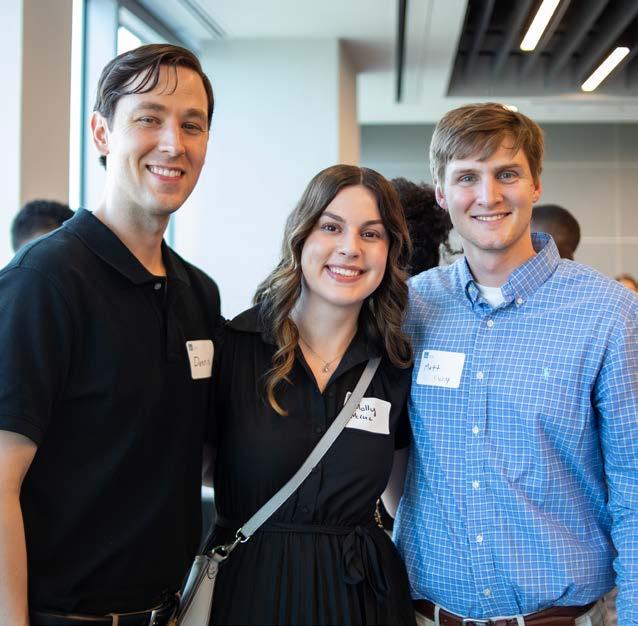



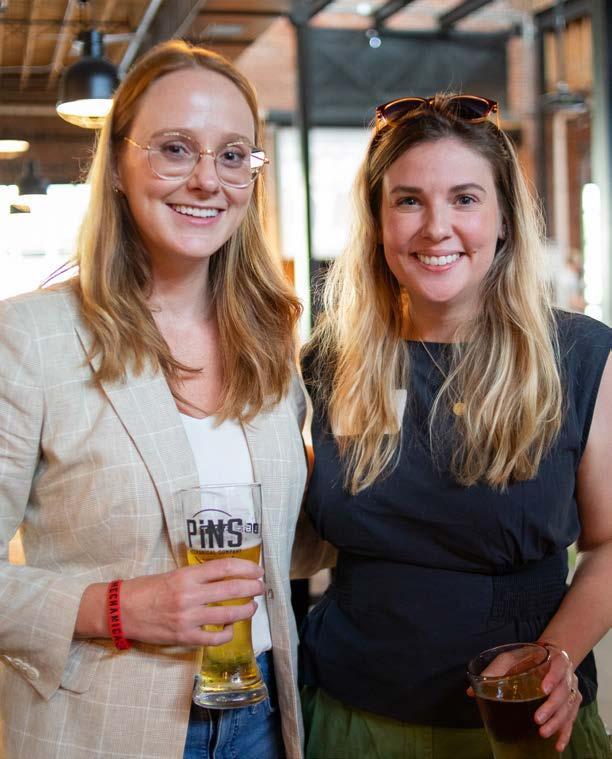



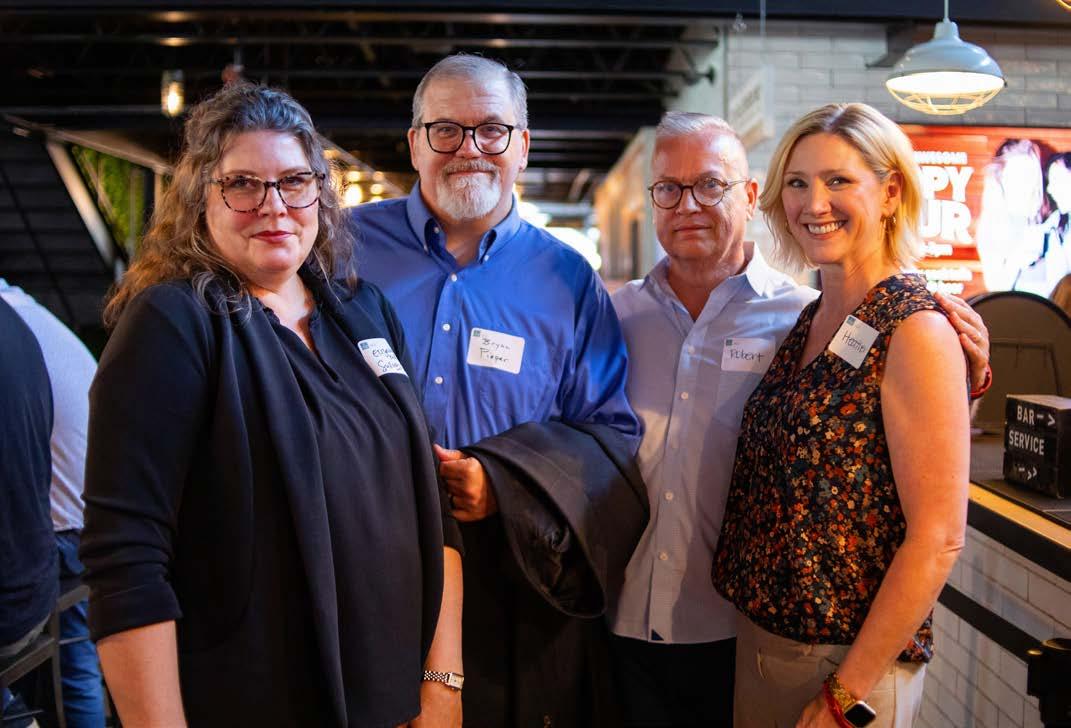
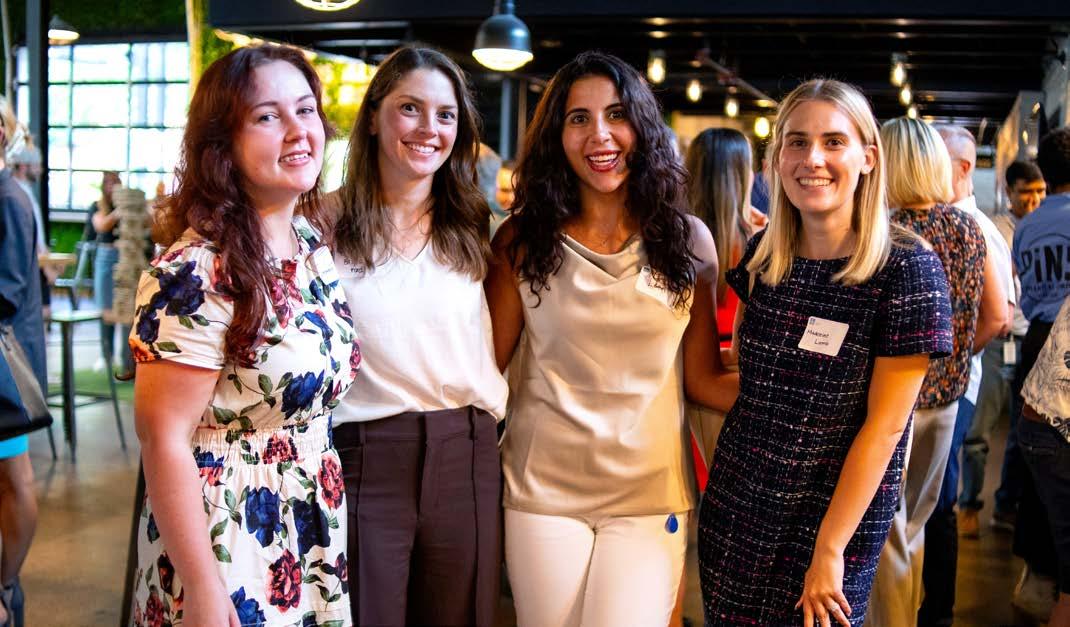
Hearsay | Honors & Awards, On the Move, Firm News
Honors & Awards

Litson PLLC is proud to announce its inclusion in the 2025 edition of Chambers USA, with both the firm and Managing Member Alex Little earning prestigious rankings in the category of Litigation: White-Collar Crime & Government Investigations. The recognition comes just one year after the firm opened its doors, marking a significant early achievement and highlighting the team’s growing impact on the national litigation landscape. Founded in 2024 by Alex Little and Zack Lawson, Litson PLLC has built a strong reputation for handling highstakes civil and criminal matters with precision, urgency, and a trial-ready mindset. The Chambers recognition reflects the firm’s success in federal defense, constitutional litigation, and regulatory disputes.

Bradley Arant Boult Cummings LLP is pleased to announce that Bradley partner A.J. Bahou has been selected as a Fellow of the Litigation Counsel of America (LCA). Bahou is the practice leader of Bradley's Artificial Intelligence (AI) and an intellectual property attorney who focuses on the intersection of law and technology. He also serves on the AI Committee for the United States Court of Appeals for the Ninth Circuit and chairs the AI Task Force for the Tennessee Bar Association. Since 2011, he has served on the board of directors for LaunchTN, a 501(c) (3) organization that supports the startup ecosystem through capital, connections, and commercialization.
Bradley Arant Boult Cummings LLP partner Patrick L. Alexander has been

elected a Fellow of the American College of Bond Counsel (ACBC). The ACBC recognizes lawyers who have established reputations among their peers for their experience, skill and high standards of professional and ethical conduct in the practice of municipal bond law. Membership is limited and nominees must have at least 10 years of substantial experience in the field to be considered for admission as a Fellow. For more than 40 years, Alexander has provided strategic counsel to clients in all aspects of public finance, including tax-exempt and taxable debt financing transactions.


Forbes recently selected Stites & Harbison, PLLC attorneys for inclusion on its inaugural America’s Best-in-State Lawyers 2025 list. The new list recognizes exceptional private practice attorneys in all 50 states. The firm’s two Tennessee attorneys include Erika R. Barnes and Richard S. Myers, Jr. Forbes’ editorial team used a “rigorous, multi-stage process of researching, evaluating and rating thousands of candidates.” Researchers focused on significant achievements and leadership gathered from interviews with industry insiders, outside nominations and recommendations from an independent advisory board of experts.
On the Move

Spencer Fane LLP is pleased to welcome Casey R. Malloy to the firm’s Nashville office as an associate in the Litigation
and Dispute Resolution practice group. Malloy represents clients in commercial litigation matters in state courts, federal courts, and arbitration, with litigation experience spanning contract disputes, construction, government investigations, health care, and intellectual property.

Sherrard Roe Voigt & Harbison is pleased to announce that William “Jay” Harbison has joined the firm as a member of its litigation practice, where he will counsel clients on various business disputes and commercial matters. Prior to joining the firm, Harbison was a partner at the Nashville law firm Neal & Harwell, where he represented both plaintiffs and defendants and advised clients on a variety of complex legal issues, with an emphasis on First Amendment litigation.


Burr & Forman LLP is pleased to announce that Benjamin (Ben) Goldammer and Danica Grosko Suedekum have joined the firm as Partners. Both attorneys come to the firm’s Nashville, TN office from Kay Griffin PLLC, and will be part of Burr’s Construction & Project Development practice group. Goldammer received his J.D. from Vanderbilt University Law School and his B.A. from Xavier University. Suedekum received her J.D. from the University of Alabama School of Law and her B.A. from Samford University.

Stites & Harbison, PLLC welcomes attorney Philip D. Irwin to the Nashville, Tenn., office. He joins the firm as a Member (Partner) in the Business Litigation Service Group.
Irwin is a seasoned litigator who handles a wide variety of commercial litigation in Tennessee and across the nation. He has represented commercial lenders in numerous receivership proceedings and has extensive experience in defending eminent domain actions. Prior to joining Stites & Harbison, Irwin was a Member (Partner) with Neal & Harwell, PLC.
Firm News
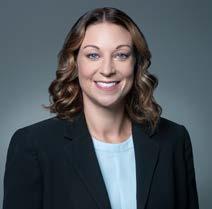
Julie A. Kilgore, an associate in Baker Donelson’s Nashville office, has earned AI Governance Professional certification. With the expansion of AI technology, there is a need for professionals in all industries to understand and execute responsible AI governance. The AIGP credential demonstrates that an individual can ensure safety and trust in the development and deployment of ethical AI and ongoing management of AI systems. Kilgore is a member of the Firm's Health Law Group, as well as the Technology and Data Protection, Privacy and Cybersecurity Teams.


Managing Intellectual Property (Managing IP) magazine has named multiple Stites & Harbison, PLLC attorneys to the 2025 “IP Stars” list. Managing IP recognizes the most highly regarded intellectual property attorneys in the U.S. The star attorneys are nominated by their peers and in-house counsel. Inclusion on the list is based on surveys, interviews and independent research conducted by Managing IP. The two of the Stites & Harbison’s Copyright, Patent and Trademark Stars for 2025 include Alexandra
MacKay (Copyright & Trademark) and Richard S. Myers, Jr. (Patent).
Spicer Rudstrom, PLLC is proud to announce the launch of Settlement Solutions, its mediation branch designed to produce effective dispute resolution by emphasizing efficiency, cost-savings, and client-centered service. Settlement Solutions expands the firm’s commitment to delivering exceptional legal services with a streamlined mediation process tailored to meet the needs of attorneys, insurance companies, and their clients. Led by a distinguished team of mediators with decades of combined legal experience, Settlement Solutions is uniquely positioned to assist parties in resolving disputes quickly and effectively.

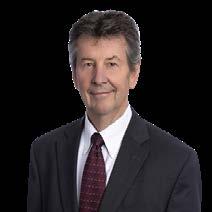
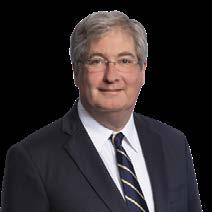




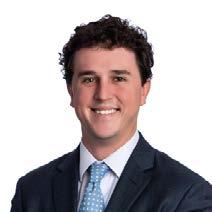



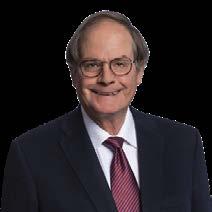

Womble Bond Dickinson (US) LLP is pleased to announce that a group of 20 attorneys, including 15 partners, is joining the firm, significantly strengthening its commercial litigation and complex disputes capabilities, among other key practices. The group joins Womble from Nashville-based Neal & Harwell. The partners include Ben Aaron, Tom Dundon, Phil Elbert, Ron Harris, Callie Hinson, Jim Kelley, Bill Ramsey, Isaac Sanders, Jim Sanders, Nathan Sanders, Mariam Stockton, Jim Thomas, David Thompson, Liz Tipping, and Jeffrey Zager. Ben Aaron represents clients in a variety of litigation matters in state and federal courts. His civil experience
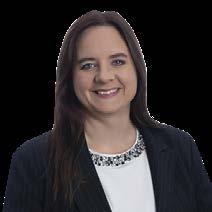
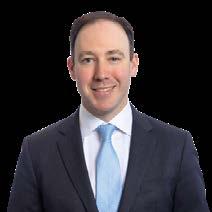
includes cases involving personal injury, wrongful death, premises liability, commercial disputes, and class actions. He also represents clients in criminal matters. Tom Dundon brings nearly 50 years of experience in civil and criminal litigation across state and federal courts. He has defended clients in cases involving bank fraud, the Foreign Corrupt Practices Act, mail and wire fraud, the Hobbs Act, environmental crimes, healthcare fraud, bribery, and obstruction of justice. His civil practice includes product liability and aviation defense, environmental mass torts, and complex business litigation. Phil Elbert has over 40 years of experience representing clients in high-stakes civil trials and appeals. Known for his strategic insight and tireless advocacy, Elbert is frequently brought in by other attorneys to advise on or take over challenging cases at critical stages. Ron Harris concentrates on civil litigation, dedicating a substantial portion of his work to commercial and business disputes. His litigation experience includes libel and defamation cases, product liability matters, bad faith and other insurance coverage cases, business torts, non-competition litigation, contractual disputes, construction disputes, and employment issues. Callie Hinson concentrates her practice in civil litigation, with particular emphasis on high-networth divorces and brings valuable experience in all aspects of domestic law, including child custody and
Hearsay | Honors & Awards, On the Move, Firm News
support, alimony, prenuptial agreements, and adoptions. She currently serves as the President of the Nashville Bar Association Young Lawyers’ Division. Jim Kelley handles legal matters on behalf of corporate and individual clients nationwide. His practice focuses on bankruptcy and reorganization, creditors’ rights, bankruptcy litigation, and taxation. Bill Ramsey brings over four decades of experience to his practice, focusing on complex civil and criminal litigation. He is also widely recognized for his work in the entertainment industry, representing artists, entertainers, and key players in the music business, including managers, advisors, agents, publishers, and record labels. A trusted advocate, Ramsey has achieved exceptional results for his clients, many of whom remain confidential due to the sensitive nature of the matters involved. Isaac Sanders is a skilled litigator and trial lawyer with over 15 years of experience representing plaintiffs and defendants in complex, high-stakes matters. His practice spans mass action litigation involving product liability and toxic torts, as well as civil and white-collar criminal cases. Jim Sanders is a nationally recognized trial lawyer with over four decades of experience handling complex litigation and investigations across multiple jurisdictions. He represents corporations and individuals in matters involving environmental and antitrust disputes, product liability, and defamation. Nathan Sanders is an experienced civil litigator and appellate lawyer who has represented clients in state and federal courts around the country in complex business, employment, toxic tort, and False Claims Act cases. He has successfully briefed and argued motions and appeals in dozens of cases and played a leading role in
all other aspects of civil litigation. Mariam Stockton is a seasoned litigator with significant experience in the entertainment, media, and corporate sectors. She represents clients in complex civil matters, including high-profile disputes and crisis situations. Her practice includes trial work in both federal and state courts, with a focus on entertainment conflicts and commercial litigation. Jim Thomas brings more than 40 years of experience in a wide range of civil and criminal litigation, with a particular focus on federal criminal defense. He is also highly experienced in appellate advocacy, having handled numerous appeals in both federal and state courts. David Thompson trusted advisor to clients nationwide, often serving as outside general counsel and providing strategic legal guidance on business and personal matters. His practice spans banking and creditors’ rights, commercial transactions, mergers and acquisitions, contract negotiation, real estate, and estate planning and probate. Liz Tipping has over 20 years of experience representing clients in civil, commercial, and criminal matters, with a primary focus on construction law. Tipping advises construction companies and small businesses on contract negotiation, risk management, dispute resolution, and litigation, bringing deep industry insight and a practical, businessfocused approach. Jeffrey Zager focuses his practice on complex civil litigation and appellate matters. He represents clients in high-stakes disputes across a range of industries, with experience in business and commercial litigation, catastrophic injury, class actions, and constitutional law. n


100% Club
Thank you for supporting your local bar association!
The Nashville Bar Association 100% Club is a special category of membership that demonstrates a commitment to the legal profession and our community from legal organizations with more than three attorneys that have 100% of their Nashville attorneys as members of the NBA. To become a part of the NBA's 100% Club, contact NBA_Membership@nashvillebar.org and support your local bar association today!
Anderson & Reynolds, PLC
Baker Donelson
Belcher Sykes Harrington, PLLC
Bradley
Brewer, Krause, Brooks, Chastain & Meisner, PLLC
Butler Snow, LLP
Cole Law Group, P.C.
Collins Legal, PLC
Constangy, Brooks, Smith & Prophete, LLP
Cornelius & Collins, LLP
Dickinson Wright, PLLC
Dodson Parker Behm & Capparella, PC
Equitable Trust Company
Evans, Jones & Reynolds, PC
Fisher & Phillips LLP
Frazer PLC
Frost Brown Todd, LLC
Grissim & Hodges
Gullett Sanford Robinson & Martin PLLC
Hall Booth Smith, PC
Hayes Thomas PLC
Healthcare Realty Trust, Inc.
Holton & Mayberry, PC
K&L Gates LLP
Kay Griffin Evans, PLLC
Keller, Turner, Andrews & Ghanem, PLLC
Kinnard Law
Klein Solomon Mills, PLLC
Law Offices of John Day, PC
Leitner, Williams, Dooley & Napolitan, PLLC
Lieff, Cabraser, Heimann & Bernstein, LLP
Lindsey Amonette McCarter Beauchamp + Glassford PLLC
Martin Heller Potempa & Sheppard, PLLC
Matt Hardin Law, PLLC
May & McKinney, PLLC
McCracken Kuhn Marks PLLC
McDermott Will & Emery
McGlinchey Stafford, PLLC
Meridian Law, PLLC
Mobley & Gontarek, PLLC
Nashville Electric Service
Neal & Harwell, PLC
Nelson, Mullins, Riley & Scarborough, LLP
North, Pursell & Ramos, PLC
Ogletree, Deakins, Nash, Smoak, & Stewart, P.C.
Ortale Kelley Law Firm
Parker, Lawrence, Cantrell & Smith
Patterson Intellectual Property Law, PC
Phelps Dunbar LLP
Polsinelli, PC
Rainey, Kizer, Reviere & Bell PLC
Raybin & Weissman, PC
Reno & Cavanaugh, PLLC
Riley & Jacobson, PLC
Rogers, Shea & Spanos, PLLC
Sims|Funk, PLC
Smith Cashion & Orr, PLC
Smythe Huff & Murphy, PC
Southern Environmental Law Center
Spicer Rudstrom, PLLC
Starnes Davis Florie, LLP
Stranch, Jennings & Garvey, PLLC
Sutherland & Belk, PLC
Swafford Law
Taylor, Pigue, Marchetti & Blair, PLLC
The Blair Law Firm
The Tennessee Justice Center
Watkins & McNeilly, PLLC
Wiseman | Ashworth | Trauger | Moore | Silvus

